
Exposé Online
What's old
Exposé print issues (1993-2011)
- 1 (October 1993)
- 2 (February 1994)
- 3 (May 1994)
- 4 (August 1994)
- 5 (October 1994)
- 6 (March 1995)
- 7 (July 1995)
- 8 (November 1995)
- 9 (March 1996)
- 10 (August 1996)
- 11 (February 1997)
- 12 (May 1997)
- 13 (October 1997)
- 14 (February 1998)
- 15 (July 1998)
- 16 (January 1999)
- 17 (April 1999)
- 18 (November 1999)
- 19 (May 2000)
- 20 (October 2000)
- 21 (March 2001)
- 22 (July 2001)
- 23 (December 2001)
- 24 (April 2002)
- 25 (September 2002)
- 26 (February 2003)
- 27 (August 2003)
- 28 (December 2003)
- 29 (April 2004)
- 30 (September 2004)
- 31 (March 2005)
- 32 (September 2005)
- 33 (May 2006)
- 34 (March 2007)
- 35 (January 2008)
- 36 (October 2008)
- 37 (July 2009)
- 38 (July 2010)
- 39 (Summer 2011)
Features
From Backwards Brubeck to Stage Diving —
The Medicine Hat Interview
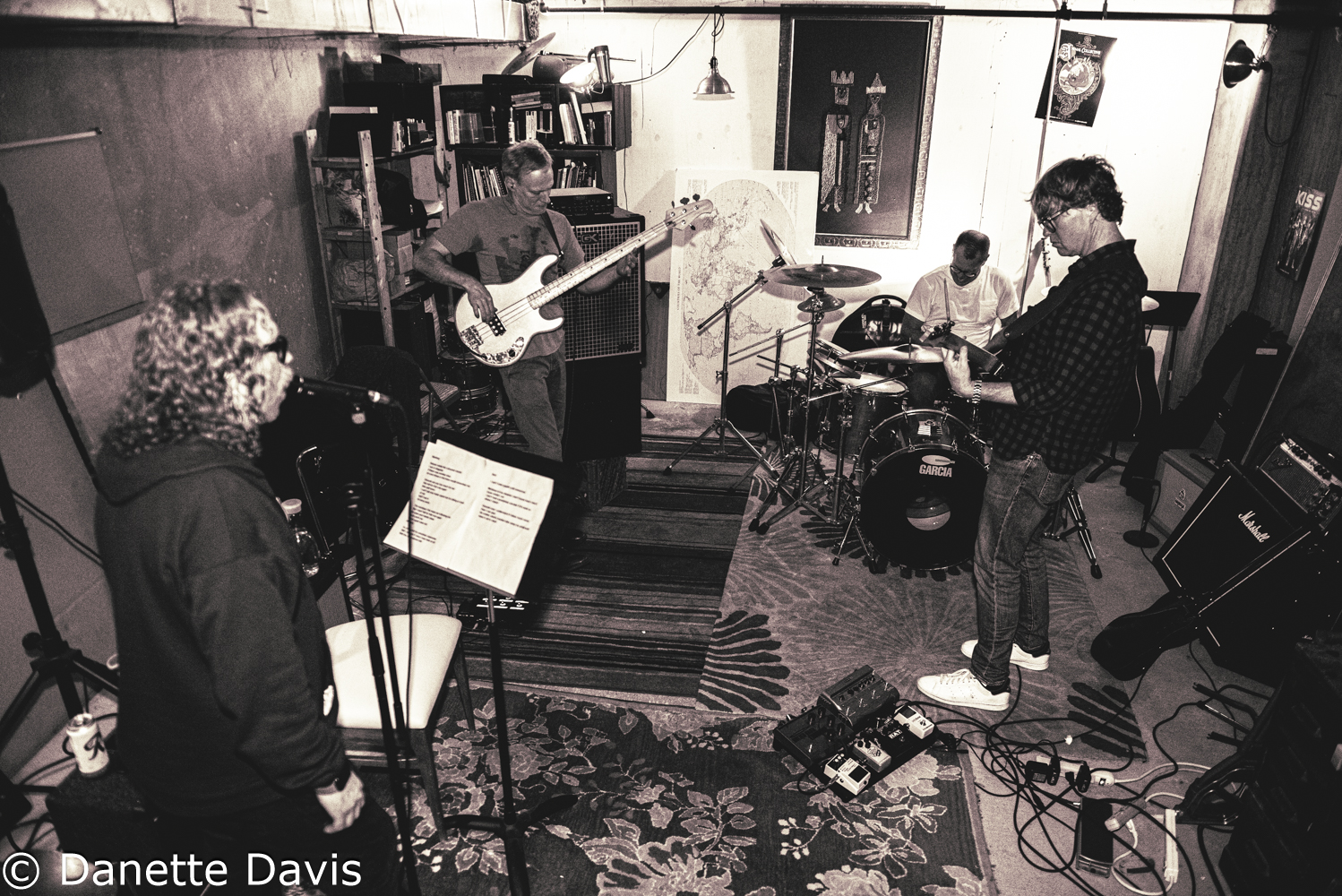
During the time period from 1989 to 1994, Seattle had an outsize impact on the music world. Bands like Nirvana, Soundgarden, Alice in Chains, and Pearl Jam garnered international attention, and journalists flocked to the city to see what was going on. There was even a movie called Hype made to document both the scene and the frenzy that was generated in (or by) the press. There were dozens of music venues active almost every night of the week, and dozens of bands played all around the Northwest. One of those bands was Medicine Hat, which got its start a bit after some of the big name bands, but flourished in the still-vibrant scene. Their music was a stylistic outlyer, with complex rhythms and unusual structures, incorporating elements of the then-nascent genre of math-rock with the emotional impact of the Seattle sound labeled "grunge."
The group broke up shortly after releasing their only album in 1994, but 2023 saw the surprise announcement that they were getting back together for a reunion show. I was able to catch part of a rehearsal and speak to the band at length about their past, present, and future. I'm very grateful to all of them for devoting so much time late on a Monday night to tell their story.
by Jon Davis, Published 2023-11-12
photography by Danette Davis
Note that this feature is considerably longer than our usual interviews, partly because all four participated, but I felt that it's worthwhile to document a fascinating little corner of music history. The conversation was interrupted frequently by inside jokes and personal reminiscences, some of which I've retained.
Medicine Hat:
SB: Sean Bates (vocals)
JL: Jason Legat (drums)
BM: Ben McAllister (guitar)
JT: Jason Thomson (bass)
For Exposé:
DD: Danette Davis (photographer)
JD: Jon Davis (interviewer)
JD: I like to get an idea how people form their vision of what music is or can be. What do you feel contributed to your ideas of music?
SB: I was about eight years old and one year my dad bought my brothers and I all records for Easter to put in our Easter baskets, and I got the Queen record The Game, and I put it on the record player and “The Game” was the first song and it was like this jet engine taking off, like psheeeew, and then all of a sudden it’s just Freddie Mercury and the piano, you know — (singing) “Open up your mind and let me step inside” — and I was just like “What is this?” It’s the first time I really connected with music, and I’ll tell you — I still have that vinyl — and I played that thing every day. We lived in a split-level house and I would run upstairs and put it on the record player and open all the windows and crank it so I could hear it outside, and I would sit out there and pretend I was playing the drums. So that’s my first experience with music ever.
JT: Musical family. My grandpa walked around constantly singing really early, you know, Hank Williams, kind of hill country music, and his musical cutoff was probably 1955 or 1960, something like that, but he always had a song. The family would have gatherings with two guitar players, some percussion, and everybody singing. But my personal thing was Sgt Pepper’s. That was what I stole from my mom, destroyed it, listened to it more. I think that’s all I can say about music.
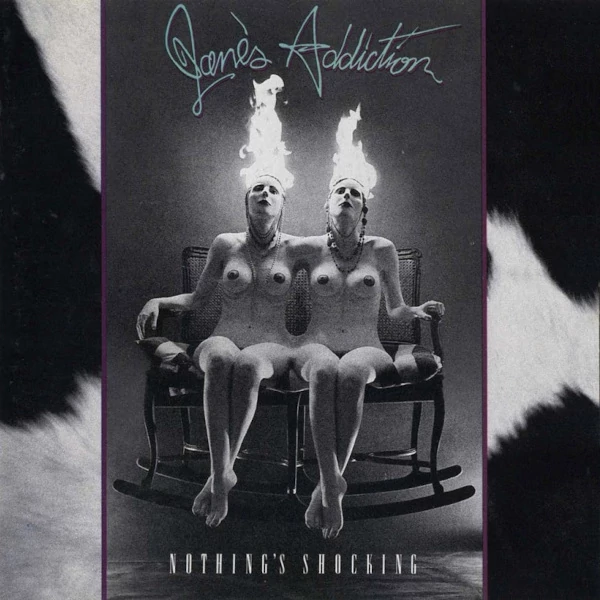 JL: I like to be challenged or something, rhythmically, or different textures, so I remember listening to, as a kid, or just before we got together, Jane’s Addiction Nothing’s Shocking. And when I listened to it then, it felt like they were all on different planets but somehow it would all work together.
JL: I like to be challenged or something, rhythmically, or different textures, so I remember listening to, as a kid, or just before we got together, Jane’s Addiction Nothing’s Shocking. And when I listened to it then, it felt like they were all on different planets but somehow it would all work together.
SB: I think we all connected on that one.
All: Yeah.
JL: I used to love Fugazi — still do — and for me, when I first heard Fugazi it was like totally different textures than I’d heard before and it was just so different, so raw. It was punk and heavy but it was also… it just really made you think, musically, and then also the lyrics were just challenging. So texture’s important, rhythm’s important, and also just people’s expressions layered on top of each other. And I always liked, especially when we played, listening to all the little subtleties that everyone was doing, and how can I hook and tie into all the little subtleties? So really like listening and connecting and each time trying to do the same thing. OK, remember how you did that years ago — how can I hook into that little part?
BM: Good job.
SB: I think 13 Songs [Fugazi] and Nothing’s Shocking just lived in the band.
BM: What was the question again?
JL: What pants are you wearing?
JD: It was “What early experiences shaped your idea of music?”
BM: What you (JL) said, I think everyone has that in common, with the listening for the nooks and crannies. Earliest experience for me is like… we all had parents with interesting record collections, and I kind of destroyed my parents’ record player when a babysitter wasn’t looking by trying to play a bunch of records when I was super young, so they got me one when I was really young. And it had 33, 45 and N — Neutral or something — in the middle. And the needle would still have sound coming out of it, but it would still be alive, but nothing would be happening so you could play it backwards or you could use your fingers.
SB: What?!
JL: Mister DJ!
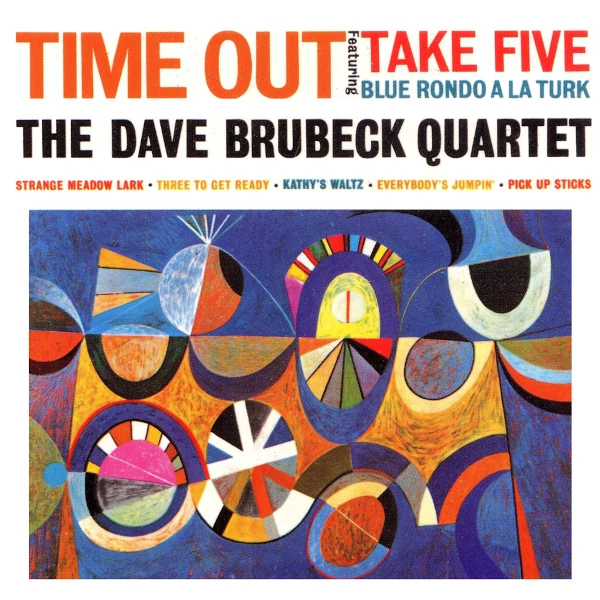 BM: I didn’t know what the fuck I was doing, but I was obsessed… I was playing Dave Brubeck backwards. I was obsessed with that Time Out record from like a really early age, which was kind of proggy, and when I first played it, I played it at 45 instead of 33, and I thought it kind of rocked. It was somehow kind of rocking.
BM: I didn’t know what the fuck I was doing, but I was obsessed… I was playing Dave Brubeck backwards. I was obsessed with that Time Out record from like a really early age, which was kind of proggy, and when I first played it, I played it at 45 instead of 33, and I thought it kind of rocked. It was somehow kind of rocking.
JL: Like “Take Five”?
BM: Yeah, that record. And then I played it backwards and stuff and got in trouble. But that is an early thing that informed my life: you can do whatever you want to…
SB: Don’t forget Queensrÿche.
BM: And then Queensrÿche. Yeah, that was next.
JT: And Voivod.
BM: But this is the thing, like parents who were supportive and like “Yeah, go ahead and fuck around.”
JD: So then what about musical development, like lessons or training?
SB: I think the only lessons I ever took, these guys paid for! When I took singing lessons…
BM: You need some damn lessons!
SB: “You wanna be the singer in our band, you need some lessons!” There was this teacher, David Kyle, the maestro, and he was the guy to go to back in the day, late 80s to 90s. He taught all the Seattle singers, you know like Layne Staley and Chris Cornell, but he also taught like Liza Minelli and James Garner. And he was this big German dude who lived on Alki, and was like four hundred bucks for six lessons. But the stuff that he taught me still to this day rings true. That’s how I’m able to do what I do and not lose my voice. I didn’t know it back then, but… Yeah, I think that’s the only lessons I’ve ever taken except for like piano lab in college.
BM: Yeah, we all met at Shoreline [Community College] when we were studying music.
SB: But Jason Thomson, Ben, and I were all Edmonds boys. Edmonds-Woodway boys.
BM: And Sean and I were the rhythm section in the jazz band for ages.
SB: And Jason was too.
JT: I was too.
SB: Yeah, he came over from Woodway and played bass in the jazz [band]… with Paul Ingstrom.
BM: Oh, that’s right.
JT: And we just played Metallica covers in our little room.
SB: And we started a band and he kept attendance. He’d be like “You’re late!” So we quit and then we started our own band. And that’s where you (JL) came in.
JL: Yeah, that’s where I came in.
SB: And then we met Jason, that’s how that all happened.
JL: Yeah.
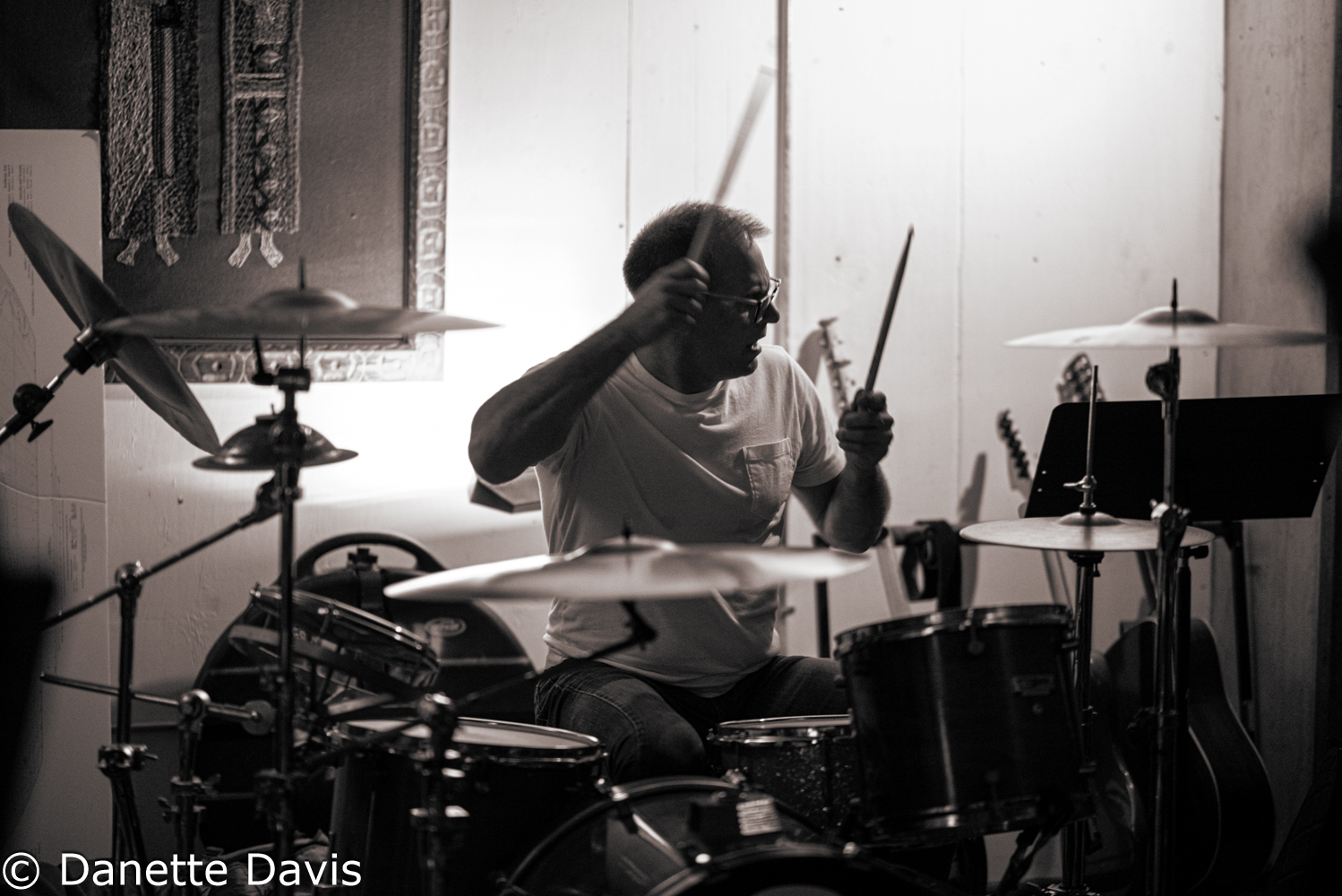 SB: It’s like “Oh, you’re a drummer? Come be in our band!”
SB: It’s like “Oh, you’re a drummer? Come be in our band!”
JT: I took lessons for two years in high school from a teacher that I feel like really gave me a lot, foundationally. I can’t say that I retained any reading or anything, but from a technical point of view. He was a double bass teacher, but he played electric, so I learned to play bass with three fingers, and I’m trying to cure myself of that because it opens up a lot of things to be able to play with four fingers.
JL: I never took very many lessons, maybe a handful over the years. Tried to learn to read music when I was a senior in high school, started singing in the church choir. A contractor I worked for played trumpet and also sang in the church choir tried to teach me to read music. And we had music theory together at Shoreline…
SB: Oh, that’s right.
JL: And I sat next to Sean one time and then halfway through the class he leaned over and he turned my book right side up because it was upside down and I was like totally… “I’m not going to be able to get this.” (To Ben) You had the most, right?
BM: Probably, yeah. I had my first guitar lessons with this guy Jay Roberts, who’s still in the area. And his dad, Howard Roberts…
JT: Oh, I took some lessons from the elder Roberts.
BM: But Jay’s dad Howard was like this studio legend in LA, he played all the guitars on the Twilight Zone theme, and he was front guy for a jazz quintet.
SB: I never knew that.
BM: Yeah. So I was a sponge. I read, and I talked to anybody who would talk to me about music.
JD: What other musical activities did you have before Medicine Hat?
SB: I did a lot of theater in high school, musical theater, and I sang in choir and jazz choir. My senior year I did a whole bunch, like…
BM: Yeah, we were in everything together in senior year.
SB: I mean, I lettered in Drama and Choir.
BM: I lettered in Orchestra and Chess.
JL: That was recorded, you know.
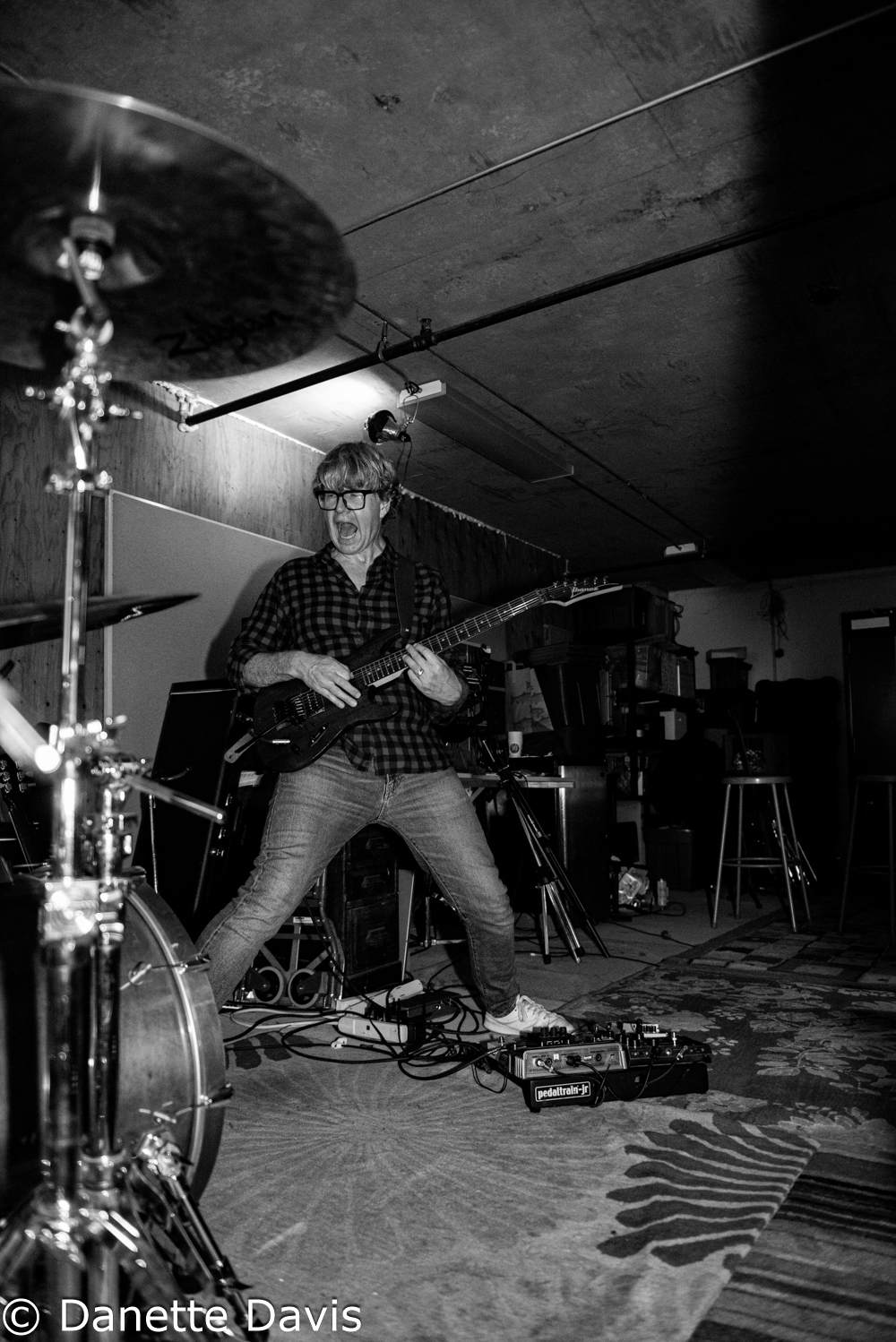 SB: I think my most defining moment is when our high schools were merging — Edmonds and Woodway — and we were doing this big performance. We were doing the Schubert “Mass in D Minor” I believe. The orchestras were combining and the choirs were combining, and what was it? “Benedictus”! And it was a trio with an alto, a tenor, and a soprano, and I went up against this other guy, Thaddeus, who was the tenor from the other school, and everyone was like, “You’re going up against Thaddeus?” But I had no idea who he was, and of course I got the part.
SB: I think my most defining moment is when our high schools were merging — Edmonds and Woodway — and we were doing this big performance. We were doing the Schubert “Mass in D Minor” I believe. The orchestras were combining and the choirs were combining, and what was it? “Benedictus”! And it was a trio with an alto, a tenor, and a soprano, and I went up against this other guy, Thaddeus, who was the tenor from the other school, and everyone was like, “You’re going up against Thaddeus?” But I had no idea who he was, and of course I got the part.
BM: My god, I do remember this!
SB: But that’s really the only other thing I did before we met. I was in a band where I played drums. These guys that lived across the street, but they were like ten years older than me, and we would just hook up on the weekends and play covers. That band was called Swift Kikk. K-I-K-K.
BM: There was this one high school talent show — it was not even senior year — and Sean was like 15 or 16 and he brings all these 30-year-old dudes with him, and the rest of us are like “Jesus Christ! What’s going on?”
JL: That’s illegal in seven states!
SB: I know!
BM: “Are they drinking beer?”
SB: Swift Kikk. We had a song “Accelerator” and it was like “XLR8R.” And I remember the singer quit so then I took over singing, and I was singing and playing drums, and that’s when I decided I really wanted to be a singer. So I quit playing drums and started singing at like 16, I think. Yeah, I totally forgot about that — Swift Kikk, rockin’ all night!
JT: Didn’t we make you sing Rush songs?
SB: You had me sing “Temple of Syrinx.”
JD: Any other pre-Medicine Hat bands?
BM: No. Jason, you got a couple.
JL: Yeah.
SB: Weren’t you in a country band?
JL: I played a bunch. So when I was 16 I played with some 36-year-old guys, seemed like ancient history, but looking back they were pretty young. Called “Devious” — DVS. I recorded a record with those guys, the first time I recorded. It was pretty cool. That was when I was a sophomore in high school, and then when I was a junior my parents let me play in a band, we played in local bars on Whidbey Island. So I’d get there like 8:30, play from 9:00 to 10:00, take a 15 minute break, play again, play again, so play like four or five hours a night. My hands would be like hamburger, you know, blisters, blood blisters popping. We played every weekend for about a year. That was pretty cool to be in a bar at 17, playing music. And then when I first met these guys, I got a call from someone I grew up with. Their cousin needed a drummer for a country band — their uncle who was playing in the band had a little problem with the Wild Turkey, couldn’t go to bars anymore. So I showed up for the first show, and said, “Hi, I’m the drummer, nice to meet you.” Then I was a freshman in college when I met these guys, and I was playing in those other bands. And then I was in this band called Lovescream.
BM: I forgot about Lovescream!
JL: A bunch of guys, really good looking dudes. That was the main part of the band.
BM: How good looking they were.
JL: Yeah, that’s about all they had going for them. And then I met these guys, and I was like, “Wow, this is different. Cool.”
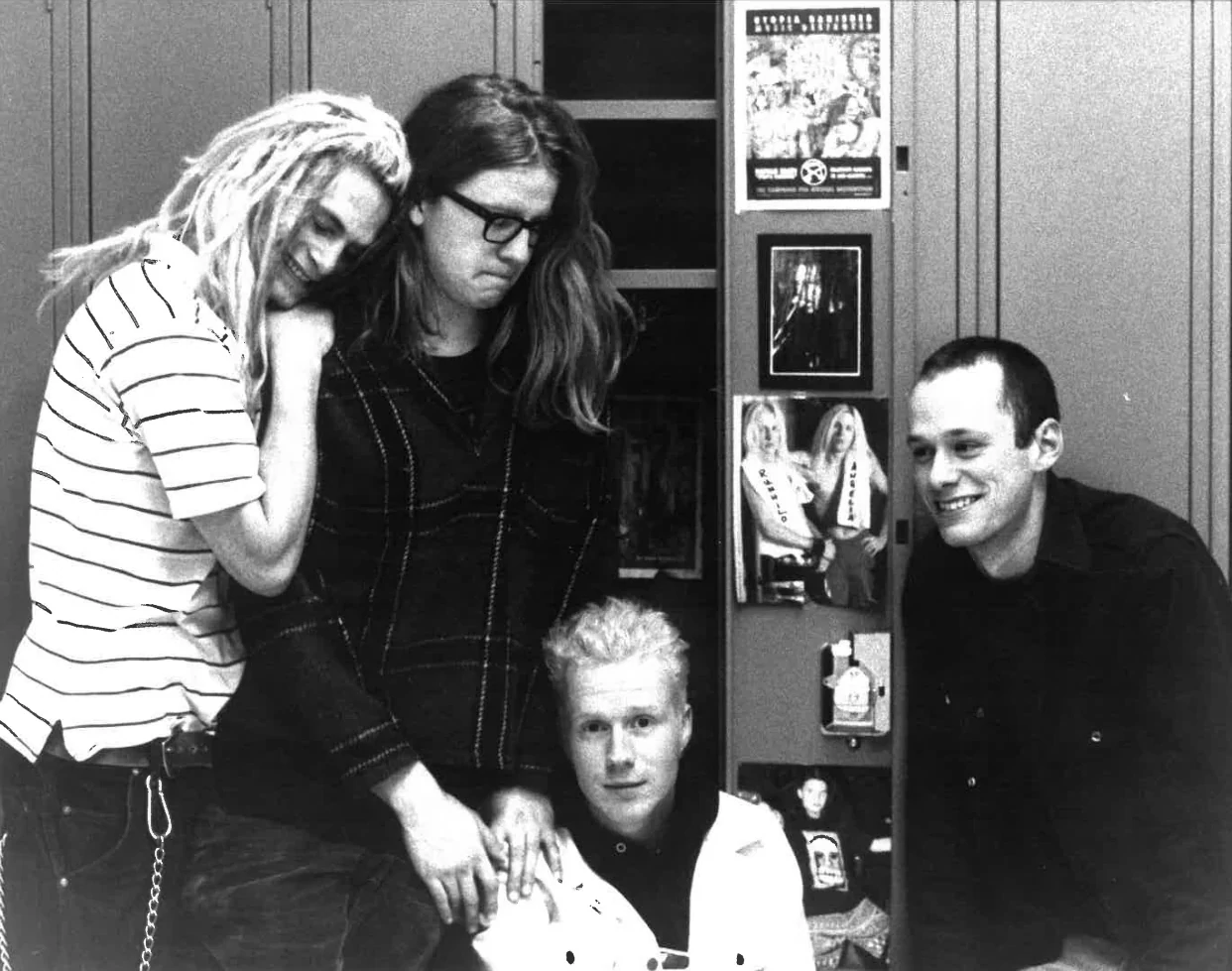 JD: So we’re up to the founding of the band.
JD: So we’re up to the founding of the band.
BM: Well, before Jason, there was Ray.
SB: Oh! Ray.
BM: So we were just a band in a basement.
SB: At Ray’s mom’s house in Shoreline.
BM: For about six months or something.
JL: An eternity at that age.
BM: It seemed like forever. And then when we found Jason at Shoreline, we had already decided to split from poor Ray… We don’t need to shame Ray.
JL: He was a hell of a cook.
SB: He really was. He was an experience.
BM: But it seemed like we hit it off pretty much immediately, and things clicked, and we were all obsessives about playing music to the point I think we were practicing three nights a week.
SB: We got that place in Everett. Was Everett the first place?
JT: It was a Mini Storage.
BM: We have a history of practice spaces that we spent a lot of time in. The first one was up in Everett. I think it was called the Storehouse. You can see it from the freeway, it’s still there.
SB: Remember, that was our first band name: The Velvet Storehouse. And we played out on Whidbey at the music store.
BM: I remember you moved this huge board in there…
JL: It was 16 or 32 tracks.
BM: We got a PA! And it’s this 32-channel board that Jason moved in.
JL: With two microphone cords plugged in!
BM: I remember moving it in, and it was like our first practice, and we were driving home from Everett, and it seemed like so far away. And we came back the next night and there were rat turds all over. The whole place was infested! It was so disgusting.
SB: Did we get the Crown Hill house after that?
JL: I think we did.
JT: Yes.
SB: And that’s where we rehearsed. And then it was the Jam Box?
BM: We rehearsed in that house for a long time.
JL: About two years, I think.
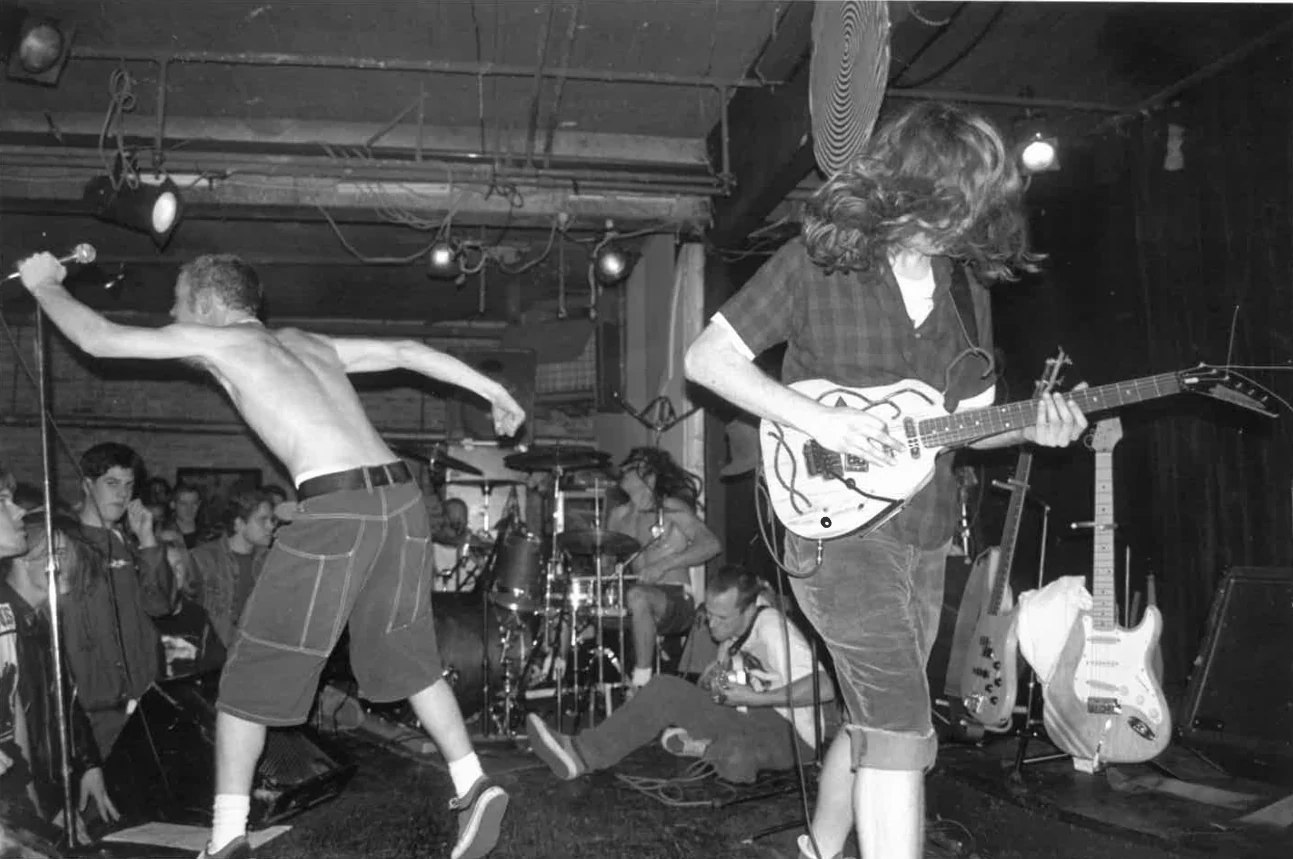 BM: But to answer your question, we were in that practice space for how long before our first show at the Ditto?
BM: But to answer your question, we were in that practice space for how long before our first show at the Ditto?
SB: No, our first show was at the Far Side.
BM: The Far Side.
SB: We were already living in the Crown Hill house when we got that show.
JL: I think six to nine months maybe.
BM: The Far Side Tavern was on 11th.
SB: We hadn’t even decided on our name yet.
JD: Near Northgate.
BM: Yeah. You remember that?
SB: I think it’s a mattress store now.
BM: It was on a Tuesday I think.
JL: With Atom and Evil. We played with those guys.
SB: Did we?
BM: Yeah.
SB: (singing) “Eyes in the back of my head…”
JL: We practiced a ton, for hours and hours.
JT: And lived together.
SB: I remember playing that first show, though, and not really knowing how to be a frontman, and I was like trying to do all these moves, and fell down on my knees and jumped up and I was like “What am I doing?” Because we were like 18 or 19, and we would play all these clubs, and we were all underage, so they would take a sharpie and put a big M on your hand for Minor. And we would have to wait outside. And they were like “Alright, guys, you’re up next. You’ve got 15 minutes.”
JL: I thought it was W for Wait.
JD: 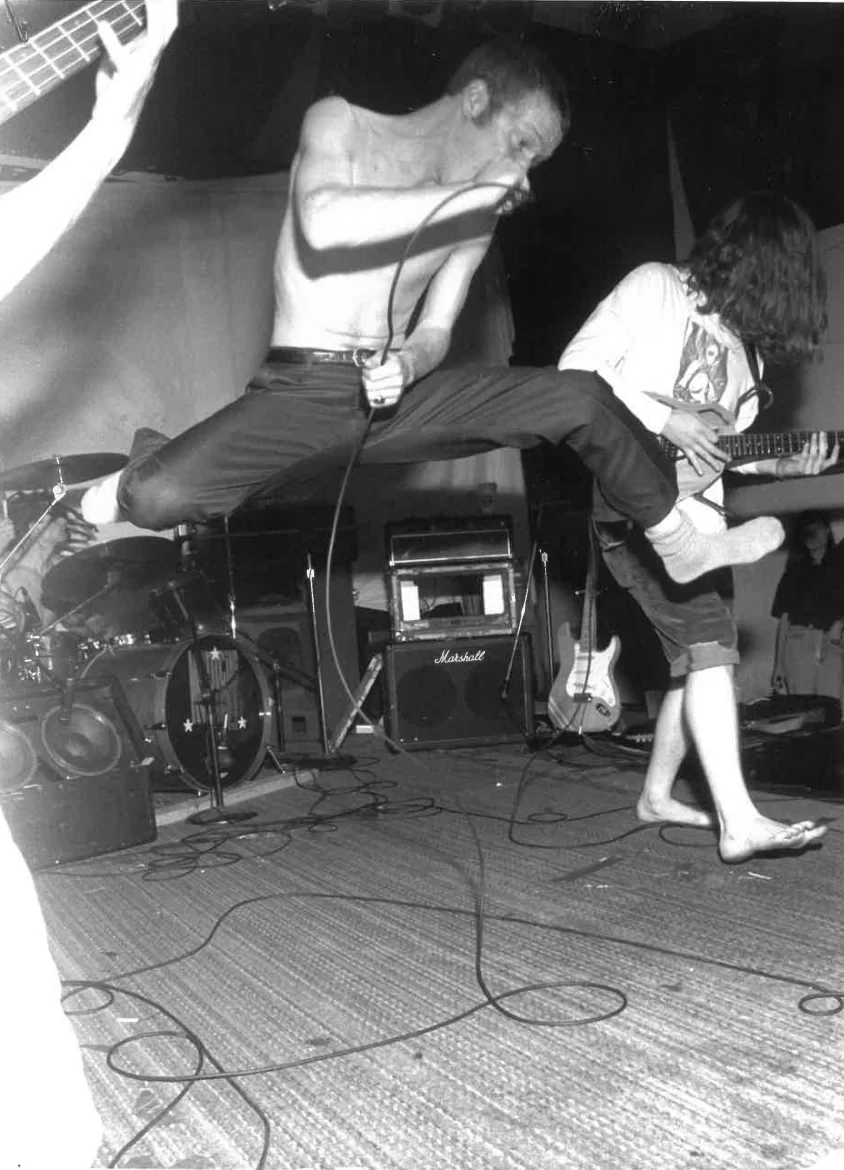 So was the band’s style there from the beginning?
So was the band’s style there from the beginning?
SB: It evolved I think.
BM: That’s a great question… I don’t know.
SB: A lot of it was just Jason would come up with a bass line. And the other Jason would play along to it.
JT: Yeah, it was pretty rare for someone to bring in an idea.
SB: I think the only idea brought in was “Stewart.”
JT: “Stewart” was a concept.
SB: That was at the Storehouse.
JT: But Stewart was our figurehead, our guy.
SB: Yeah, it was our little Buddha guy.
JT: He went to every show.
SB: Yeah, he did.
JL: So we practiced a ton, and then we started playing a ton. We got tons of shows, and for maybe a year we played two, three nights a week.
JT: Open mics.
BM: Anybody who would have us.
JT: Play one song… we don’t care.
BM: Open mics?
SB: Oh, yeah, remember at the New World? Or the Last Exit, Ben? We did…
BM: Oh, yeah! That’s something we did before this.
SB: We did “All Along the Watchtower” and we did “Black Tuesday” and “I Would for You” from Jane’s Addiction. “Black Tuesday” was our original.
BM: Heavy song about the stock market.
JT: That was a holdover.
SB: What was I thinking? There’s gotta be a recording of that somewhere.
BM: But we played a ton, and everything came out of jams, like he’s saying. I don’t know, there’s like a tune or two where it starts to sound like the sound on the record. But there’s definitely a bunch of material before that.
JD: The distinctive thing about Medicine Hat, listening to it now, is that the chords are in the bass and the guitar is just…
BM: All over the place, yeah.
JT: I had this feeling that because we were just a bass and guitar, that I needed to play rhythm guitar too. I was a little obsessed with that idea, I think.
SB: But once the two Jasons, they had this ability to kind of lock in together, and it was just the great anchor, and Ben and I could do whatever we wanted.
JT: Jason’s like an octopus. You’re hitting everything, accenting everybody.
SB: Now that we’re back together it feels like we’re going to the gym every time we play.
BM: I know. There’s a lot of playing.
SB: We were just all over the board, we did everything.
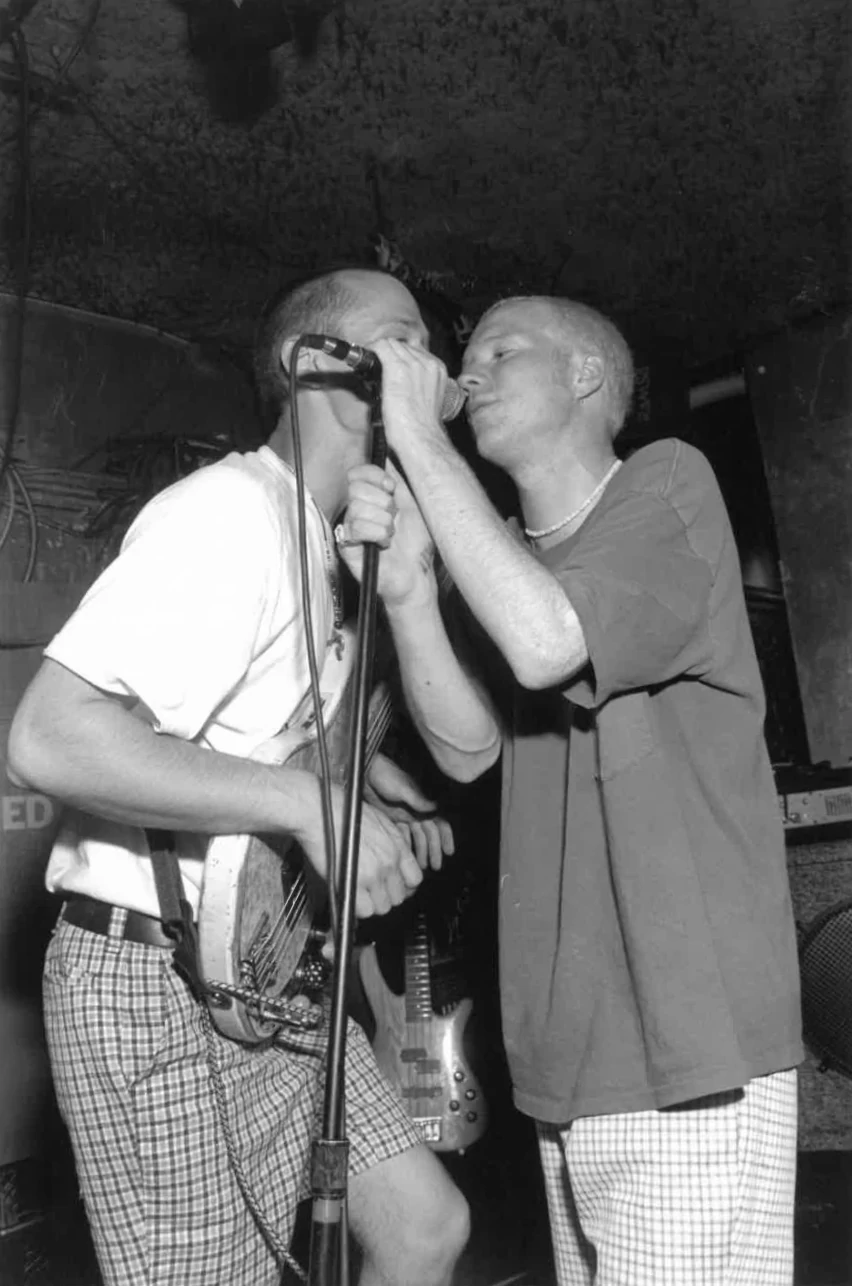 JD: There’s not much slacking in any of the songs.
JD: There’s not much slacking in any of the songs.
JL: Some of the songs have this little rest section…
BM: The recovery section.
JL: What did you say? You didn’t realize we were an art rock band when you listened to it again?
JD: How did you see your music at the time? Where did it fit in?
JT: It didn’t.
SB: We had so many influences.
JL: We played with so many bands, and there was, like the band Satchel had their deal, and I think we were just trying something different. Like you said, Ben was out there, Sean was super powerful and out there, and Jason and I were kinda holding things down. But there were lots of possibilities, it wasn’t “Hey, we have to sound like this.”
SB: We never talked about what we wanted to sound like, we just kinda did it. But we all listened to a lot of music together, too…
DD: Like what?
SB: Drive Like Jehu…
BM: Jehu big time.
JT: Firehose, Mike Watt, in the van.
SB: The van!
BM: Oh yeah, talk about the van.
SB: We had this old van, a painter’s van, and the two Jasons…
BM: With their carpentry skills.
SB: …converted it. They built these beds and seating areas and they built this compartment at the back where we put our gear underneath it.
BM: And you could lock it.
SB: Because we were always going to the Tri-Cities, Idaho, Wenatchee, down to Portland, Bellingham, and Jason Legat was always the driver, because he was the one that was never drinking, and we were the ones going, “Ah! Party!” But we listened to so many bands in that van.
JL: We’d just dig our hands into an old pillowcase — we dumped our old tapes into this pillowcase.
JT: Primus.
SB: Primus, Jane’s Addiction, 311.
JT: Deep Forest.
SB: Jehu.
JL: Phleg Camp.
BM: Oh yeah, that Phleg Camp record!
SB: Drunken Boat.
JL: Mule. You remember we played with those guys?
SB: We just listened to a lot of stuff together, and I don’t know if that’s where our sound came from, because we all have our own personal influences too.
JT: I was kind of into noises. I would hear noises in our practice space and somehow try to incorporate it. Like our amps, we didn’t have really great gear so it would pick up RF stuff in the building and you would hear this “Ree-ruh, ree-ruh” and be like “Oh yeah, that’s cool.”
SB: We tried, you remember that song, “Southern”? Guh-guh-guh-guh-guh…
JT: Dissonant feedback.
SB: We were always trying to do things… We weren’t trying to do things different, we were just kind of doing things different. And we were like 18, 19.
JT: The stakes weren’t high — we only had to please ourselves.
SB: It was just four or five years that were really formative to all of us, and we were just…
BM: And we had really lucky timing too, ‘cause we went from every open mic we could go to, to all of a sudden… Maybe it was just all our friends started showing up because we were one of the bands playing one all-ages show after another. We were like the banner band for the minute of all-ages shows.
SB: We were the band that had the all-ages following.
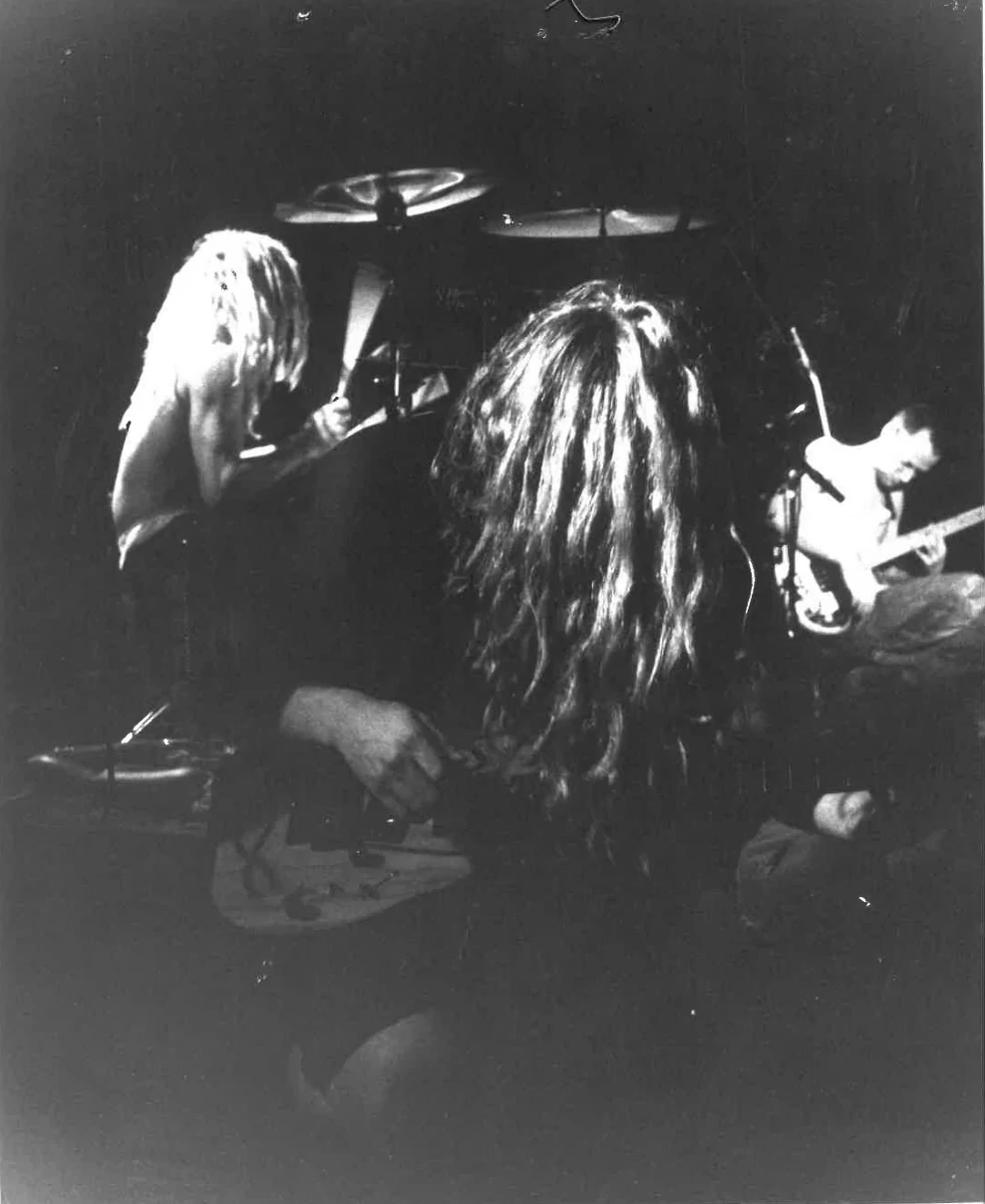 JT: The OK Hotel.
JT: The OK Hotel.
BM: The OK was huge into us, and that’s probably where our biggest draws were, but they were a very supportive indulgent audience, they would just listen to anything we did.
JL: The audiences were underage, and so were we, except you (JT) were maybe 21, so we were just these kids who couldn’t get into bars to watch all these Seattle bands that were blowing up, so it was really cool to be… The thing that was really cool was that it was our friends in the crowd.
SB: Those bands that were big didn’t have the all-ages following so they would trade shows with us, so they’d go “We’ll play an all-ages show with you and then you can play with us at a bar.” So that’s how we got more shows.
BM: And then we got managers...
JL: And that was like a two and a half year run that made all the difference as far as better and better shows, and exposure, and it was fun. It was a cool moment there.
JD: What were some of the other bands you were playing with? You’ve mentioned a few.
BM: Sage.
JL: Tchkung.
BM: Smalls, Sweaty Nipples.
JT: Critters Buggin’.
SB: We went on tour with X. We opened for Frente!
JT: Hitting Birth.
SB: We played the Gorge with Stone Temple Pilots.
BM: The Meat Puppets and Stone Temple Pilots… weirdest bill!
JL: My all-time favorite was Phleg Camp. They were from Toronto, weren’t they?
BM: Yeah, they were from Toronto.
JL: Probably the most influential for me. They were insane. They would play something regular, like 16-bars, and then it was like 37 repeating the exact same thing. Their structures were just insane. It was just so hard to follow.
BM: That is one super special record that Steve Albini recorded on Cargo.
JL: It’s so awesome. And another band for me was Mule. I think they were from Michigan, and their drummer — I don’t know his name or anything — but he played so hard. And he would almost like Cobra Pose with his arms, and I remember seeing this guy, he was probably in his early 30s or something and I’m like 19-20, and there’s nobody in the Offramp but us. And he was playing like he was playing to 200,000 people, and it really inspired me to no matter where you are, give it everything you have, ‘cause that could be the last time. So Mule and Phleg Camp for me.
JL: Snaüt? [Pronounced Snot]
SB: Treepeople.
JT: I think Sage was my favorite.
JL: Quiet Riot.
SB: We never played with Quiet Riot, did we?
JL: Yeah.
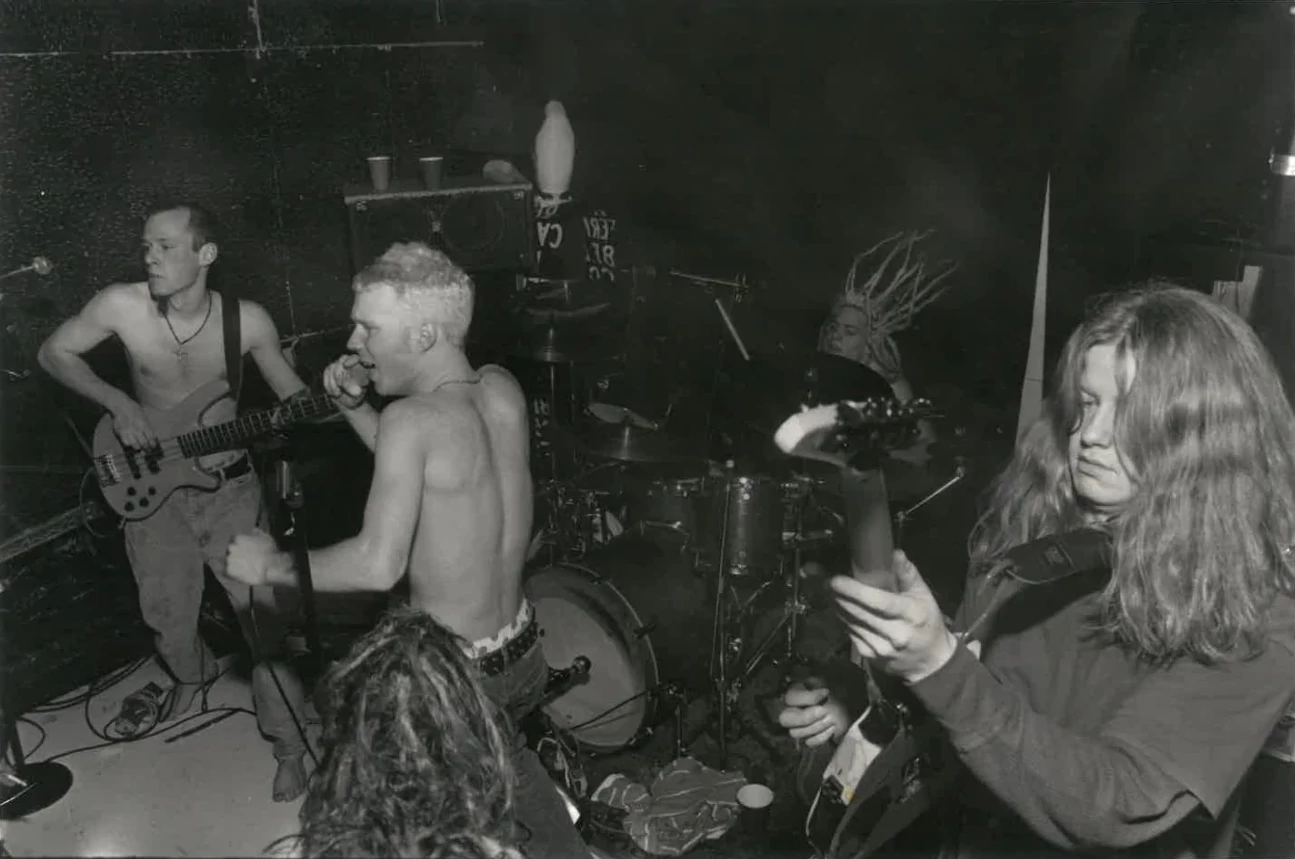 BM: Boredoms. We were gonna play with Boredoms, and then they…
BM: Boredoms. We were gonna play with Boredoms, and then they…
SB: Sweet Water.
JL: Sweet Water played a bunch.
BM: …They were in a car accident or something. Their bus broke down.
JL: Engine Kid, did you say Engine Kid?
BM: Engine Kid, yeah.
SB: Treepeople. And the band Franklin Fairgrounds in Eastern Washington.
JL: That was awesome. That was such a fun show.
BM: There was this Gwar-ish band from Spokane, Snaüt with an A-U-T with umlauts over the U. And the guy would come out, and he was kind of an Alice Cooper looking guy, but he would come out in a Depends, and he insisted they were from Australia.
SB: He had all this raw meat.
BM: They would throw raw meat. It was awesome. So fun.
JT: Nicest guys in the world.
BM: They were nice guys at the end of it.
SB: They had a mattress on stage and all the raw meat.
JT: We would get booked with random shit. And it was kinda like the show that’s coming up.
SB: Was it like Lauren or Laurie at the Offramp who really liked us a bunch?
JT: Call you up, last minute.
SB: We would get these random shows.
BM: Oh, right.
JT: And the Ballard Firehouse called up all the time to play there.
JL: Black Happy.
BM: Black Happy, that’s one we played a lot with.
JD: It sounds like there was a sort of a community of bands in Seattle, so it was more like cooperation than rivalry?
BM: Sure.
JT: There was a wealth of places to play, there were so many venues. It was kind of incredible timing, for just the ability to go and get a show last minute or go see bands.
SB: Yeah, we went out and saw music a lot too.
JL: We’d go after practice. “So-and-so’s playing tonight.” Remember Blind Tribe? Or we would have friends that worked at different bars and we’d pop in and go see stuff when we were old enough.
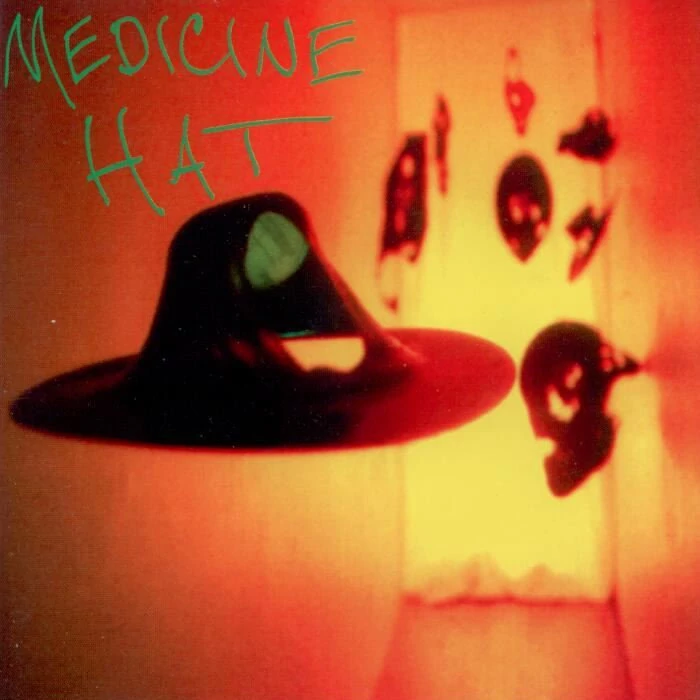 JD: What led up to recording the album? You had already recorded a few songs…
JD: What led up to recording the album? You had already recorded a few songs…
JT: Three songs.
BM: At Ironwood, three stabs at a demo. ‘Cause there was the “Stewart” one and there was the stuff with Gino at Shoreline.
JL: Which was pretty darn cool.
BM: Which was pretty good.
SB: “Angry Gods” and “Aqua Velva Man” and “The Ocean.”
BM: And people really liked that “Ocean” song.
SB: Oh, yeah. It’s like twelve and a half million minutes long.
BM: And then with what’s his name at the Music Source.
SB: It was at the Music Source and then it was up at the Jam Box.
JT: Dimitri.
BM: Dimitri! And then after that then Don Gilmore. So there were like, what’s that, four?
JT: But we ended up at Bad Animals.
BM: We were at Bad Animals for three songs.
JL: It was like $2500, which was basically a million dollars to us then. Our rent was like $400 combined for all of us. But we recorded three songs.
SB: For two days.
JL: And that was our demo for a long time. And then we started getting courted by different record labels and stuff.
BM: That demo was well-received.
SB: Opened a lot of doors. That’s how we got the tour with X.
BM: And how we got CMJ. We didn’t have a record yet when we went to CMJ. Do you know that CMJ?
JD: Oh, yeah. College Media Journal. I was in college radio at WSU.
BM: That was a really big deal when we got into that.
JL: Country Music Jam…
BM: Yeah, it’s in Nebraska!
SB: That was a fun weekend though, in New York. There were a lot of our friends from Seattle there too, and we just kept running into them all weekend. Like Satchel, we went and saw them play at the Mercury. And we’d walk in…
JL: And Drew Barrymore was there.
SB: Yeah, a young Drew Barrymore, and Anthony Kiedis was there. And Shawn [Smith] was up on stage and he sees me and jumps down and he’s like “Man!” and giving me a big hug, and I’m thinking “This is so cool.” And I remember there was the bodega around the corner from where we were staying at the hotel and they would sell you beer and pizza until like four in the morning. So one night I went in there to get beer and pizza and this girl’s like, “Hi!” And I’m like, “Oh, hey, what’s up?” And the next day I see her on TV and it was Tori Spelling.
JL: Oh really?
SB: Yeah.
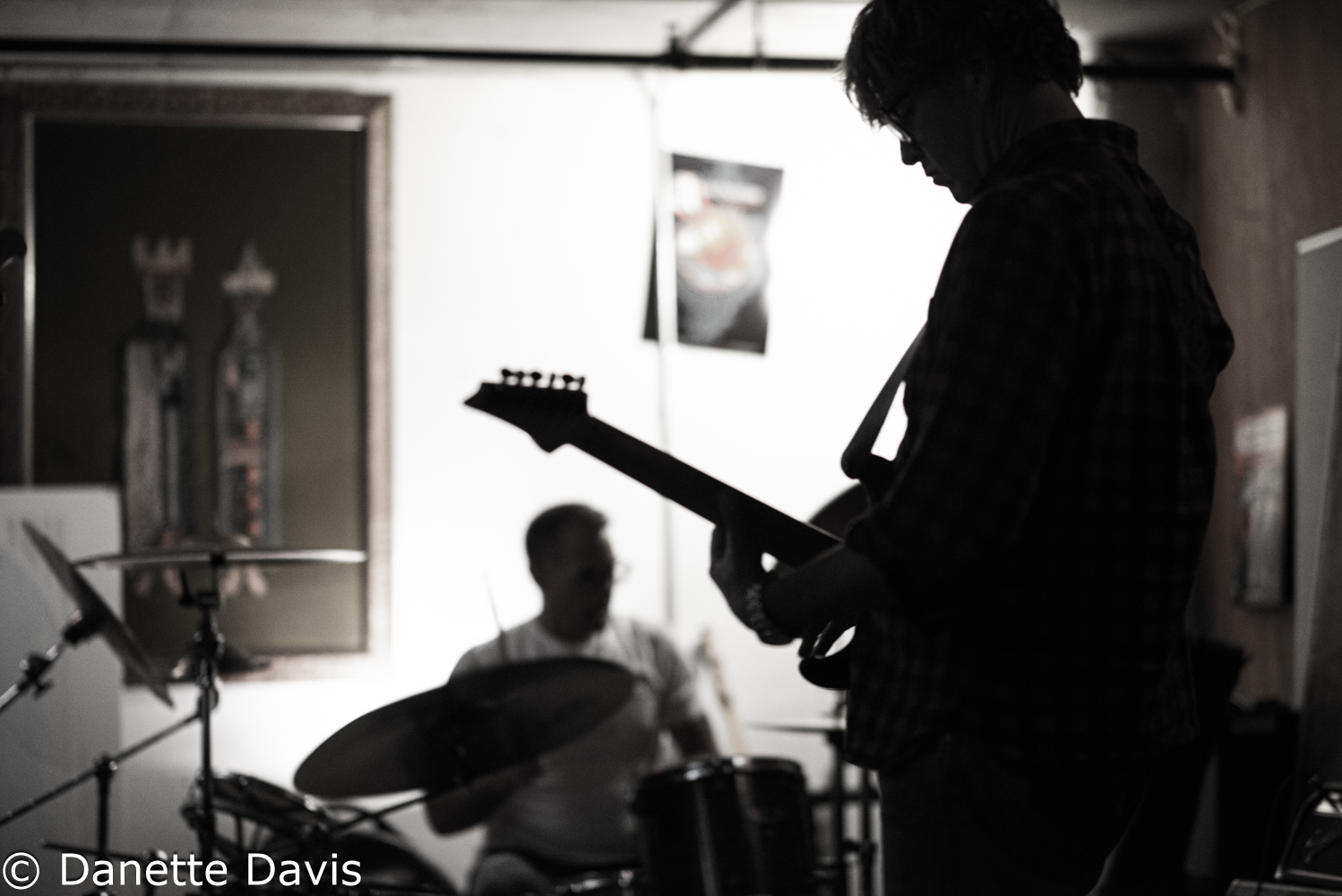 JL: Didn’t we see Heavy Vegetable?
JL: Didn’t we see Heavy Vegetable?
BM: Yeah.
JL: They were sick, so awesome.
BM: We were super into all these San Diego bands. Jehu’s another one.
SB: Yeah, I think a core of our sound was just our unity on the music we listened to together.
BM: But talking about what led us to doing the record, we haven’t talked about Nabil [Ayers] and Jason [Sutherland], and them having this record label. So this guy Nabil Ayers, who’s got a book out recently and writes for the New York Times and stuff.
SB: One of the owners of Sonic Boom Records. [A record store in Seattle. - ed.]
BM: Those guys had a record label beforehand, and I think we were like maybe the third record they put out. He wrote this super-nice note, “Will you guys be on our label? You’re our favorite band in Seattle.”
JL: Third favorite.
BM: Third favorite.
JL: Third to seventh favorite, beside his band, which was the first one. But that was an awesome hookup. Their label was Collective Fruit, and that’s the label that the album came out on.
SB: They were super cool.
JD: For the recording, was it mostly live?
SB: We were just talking about this.
BM: It was mostly live.
SB: When we did the three songs at Bad Animals, we did the basics for a day, and then the second day was overdubs, right?
JT: It was multi-tracked and gone-over and polished.
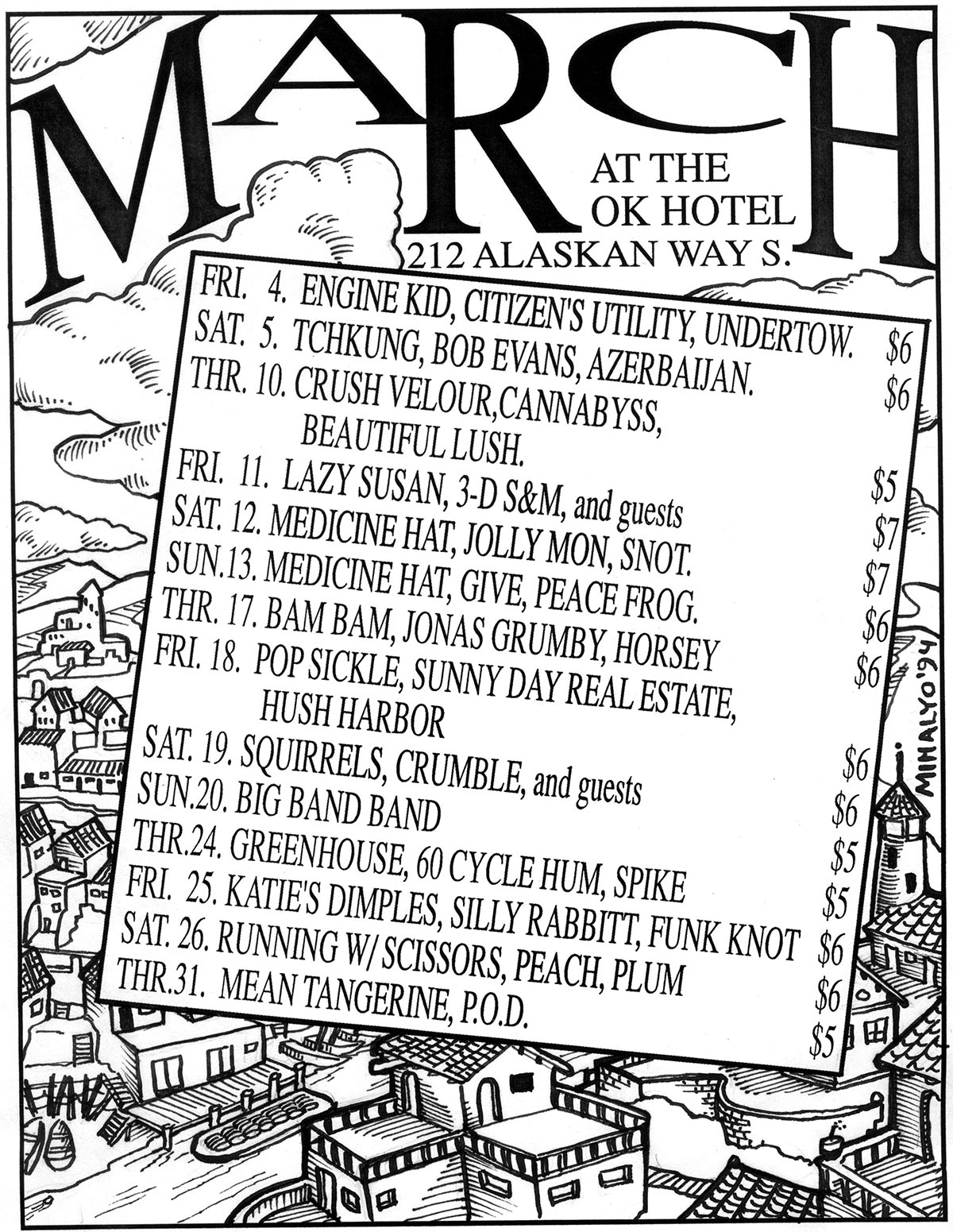 JD: How did you adapt to the process of recording? You’d played live a ton by that time…
JD: How did you adapt to the process of recording? You’d played live a ton by that time…
JL: It was hard for me, because they wanted me to play to a click track, and that was hard. I think we ended up scrapping it. I tend to slow things down all the time when we play, so they wanted to keep… That was a joke, guys.
BM: I was gonna say, “What?”
JL: It was hard for me to have the earplugs in and the headphones and still hear everything. After a while I got used to it, but it wasn’t the same experience. When you practice like forever in a space like this, where we’re all basically within two or three feet of each other to be in far, different rooms… it was not the most comfortable thing then. I’m more used to it now, but then it was…
SB: We can’t forget the recording at Ironwood too. “Several,” and “Stewart,” and… there were three.
JT: “Devotion.”
SB: Oh, “Devotion.”
DD: So in general were you happy with the production?
All: Yeah.
JT: As different of a sound as it was, and the fact that we didn’t necessarily pick the person who was running the show, or producing it, I think we did pretty good.
JL: Yeah. And for being 20 years old!
SB: I had a hard time with it for several years, not so much my performance, but just kind of like personally, I just felt like I wasn’t using my true voice for a long time, and it wasn’t until we had broken up and I started doing my own stuff that I started realizing that there was… I wasn’t… I won’t say pretending but now in hindsight coming back and listening to it and re-listening to all the words and my performance and how I approached everything, I’m really proud of it. But it took me a long time. I think it was the four of us getting [back] together, like the first night, and just hanging out and talking it just kind of made all that go away.
DD: For me, listening to the record over and over again, I get lost in how everybody is playing, I get lost in the vocals, and how everything connects so well together, and I think “How old were these guys?” Because everybody was playing really really well and it’s really sophisticated.
SB: ‘Cause all we did was practice!
JT: It wasn’t really straightforward. And we listened to each other, and I think we had each other as influences.
BM: Big time.
SB: Another thing that was really special to me too was Jason Legat ran into this photographer, Jeff Hansen, who was just this short little Norwegian dude that lived on a boat on Shilshole, and he followed us around for two or three years and just took all these photos on film, and Jason (L) ran into him and he just gave him everything, like all the negatives, the proofs, the photos. And so when we got together at Jason’s house to kind of figure out what we were going to do for this reunion show, Jason had this whole memorabilia arsenal on his dining room table. And there were old setlists and flyers and…
BM: T-shirts.
SB: But anyway, there was this stack of photos, I was going through this stack of photos, and there’s live shots. You know there was one time we were driving to Eastern Washington and he saw something, and he was like “Pull over!” And we got out and did a photo shoot. So seeing this period of our lives to be documented on film was… One, it was like a total time capsule. Two, it was just so cool to see that. ‘Cause the four of us went through this thing together that no one but us experienced. And not a lot of people have that. So coming together like this has brought a lot of that up to the surface.
JL: A lot of memories. Like as you’re playing, I’ll close my eyes and all of a sudden I’ll be at a show someplace and vividly remember Ben with his huge flopping hair and no shoes, and Sean would turn sideways and he’d disappear.
SB: I was about 120 pounds back then.
JL: Like you said, Sean, it was a chapter, and we all experienced it together in our own ways..
JD: After the record came out, how did you feel it was received?
SB: We started getting medium rotation on, back then it was KCMU, now it’s KEXP.
BM: We had a couple friends that DJ’ed on KCMU, which didn’t hurt.
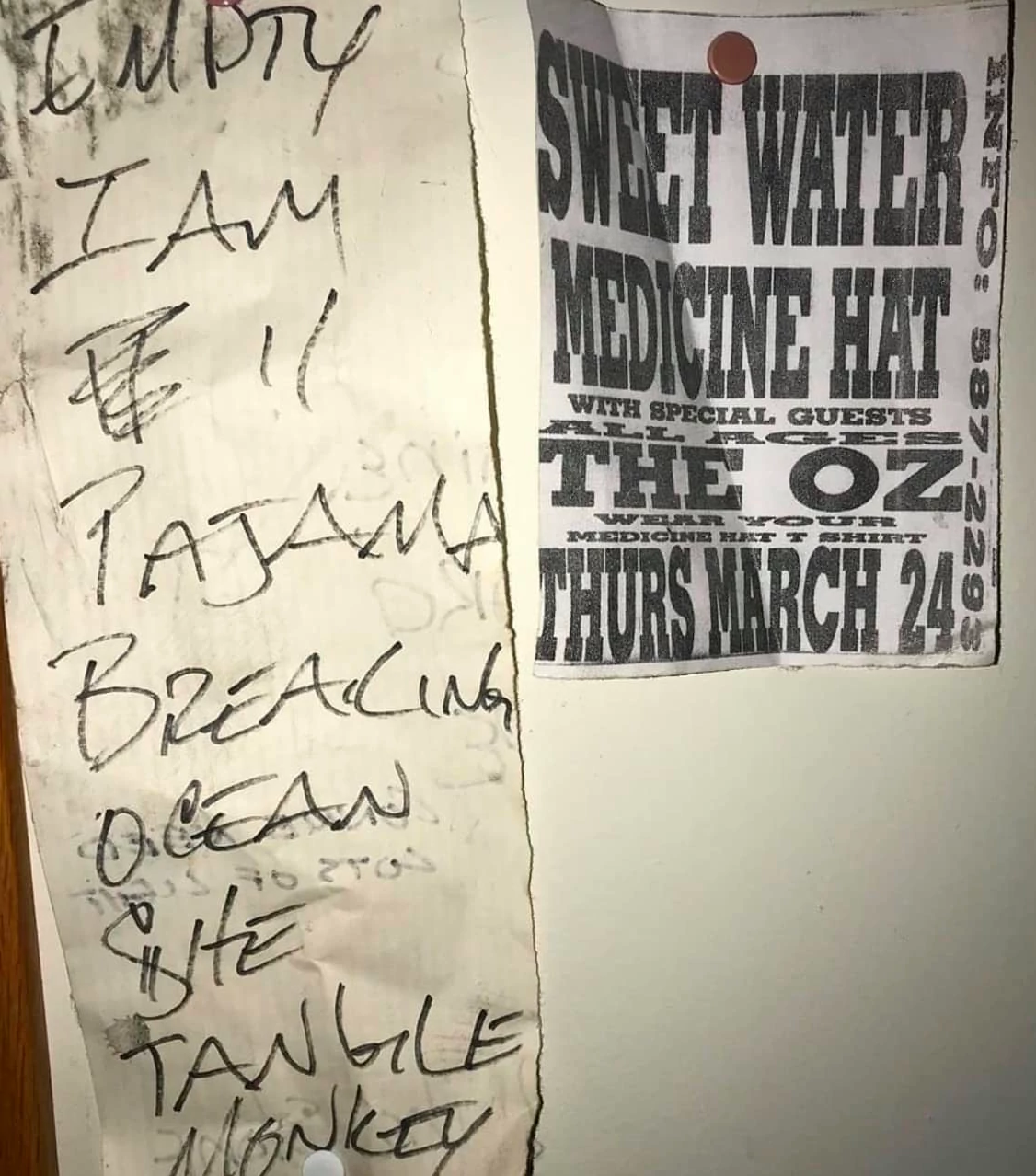 JD: Had you planned on doing a second album? There was more material, right?
JD: Had you planned on doing a second album? There was more material, right?
BM: Yeah.
JL: We played three records worth of stuff eventually, don’t you think?
JT: I don’t think…
BM: Maybe an EP or two.
SB: When we got together a couple months ago, Jason had all the setlists and we were like “What’s this song? What’s this one?” We couldn’t even remember some of them. Like a third of them.
JD: OK, that leads us to… Why break up? What happened?
SB: Oh, boy.
JT: Well, the way that I recall, and that previous thing that we were just talking about. I don’t think there was any new material after the CD was recorded. I don’t think we added any new songs in that one year period.
SB: I mean, we had new stuff that we were playing…
JT: That was after I left.
BM: I think that’s what you’re thinking. Talk about how you left.
JT: Um, yeah.
SB: Yeah, man, talk about it.
JT: I have this kind of lead-up to that, that I was not producing any material. I just wasn’t. I was in a creative stuck place. I didn’t know that, and we weren’t writing. We were just playing shows and doing stuff, but not creating. And our manager unexpectedly quit — that was probably in November ‘94, and I was really itching to figure out what was wrong with the situation. I wanted to leave Seattle and go somewhere that I thought would somehow fix that. Different city, bigger city, or better music city than Seattle. The scene was drying up.
JL: Things were changing.
SB: I remember Jason (T) tried to quit earlier and I talked him out of it.
JT: I kind of impulsively laid it out there, and within two weeks I bailed. I tried the gambit of “Will you guys move to California with me?” And everybody was like “Yeah… no.”
JL: I thought it was New Orleans you wanted us to move to.
SB: And then we got Scott for about six months.
JL: It wasn’t the same. He was cool, but it was just not the same.
SB: And then Ben and Jason just said one day, “We’re done.” I was like “Really? OK.”
JL: I always felt it was like a really great book that ends too quickly. And like you were saying, after years of listening to it, you took a break and listened to it and didn’t like it, but over time you like it. I felt that, for me, I focussed everything I had at the time — which was $18.27 — but I was so into it, and it was, “Now what?” Other chapters unfolded. It was rough at first, but over time I got to do other things. But I didn’t play music for six or seven years afterwards, and once I did start playing again, I always think about that drummer from Mule. Every time I play, it could be the last time. Because I’d experienced that feeling of “Hey, we’re gonna have practice,” and then the next day there’s no practice.
SB: That was weird, not having the routine.
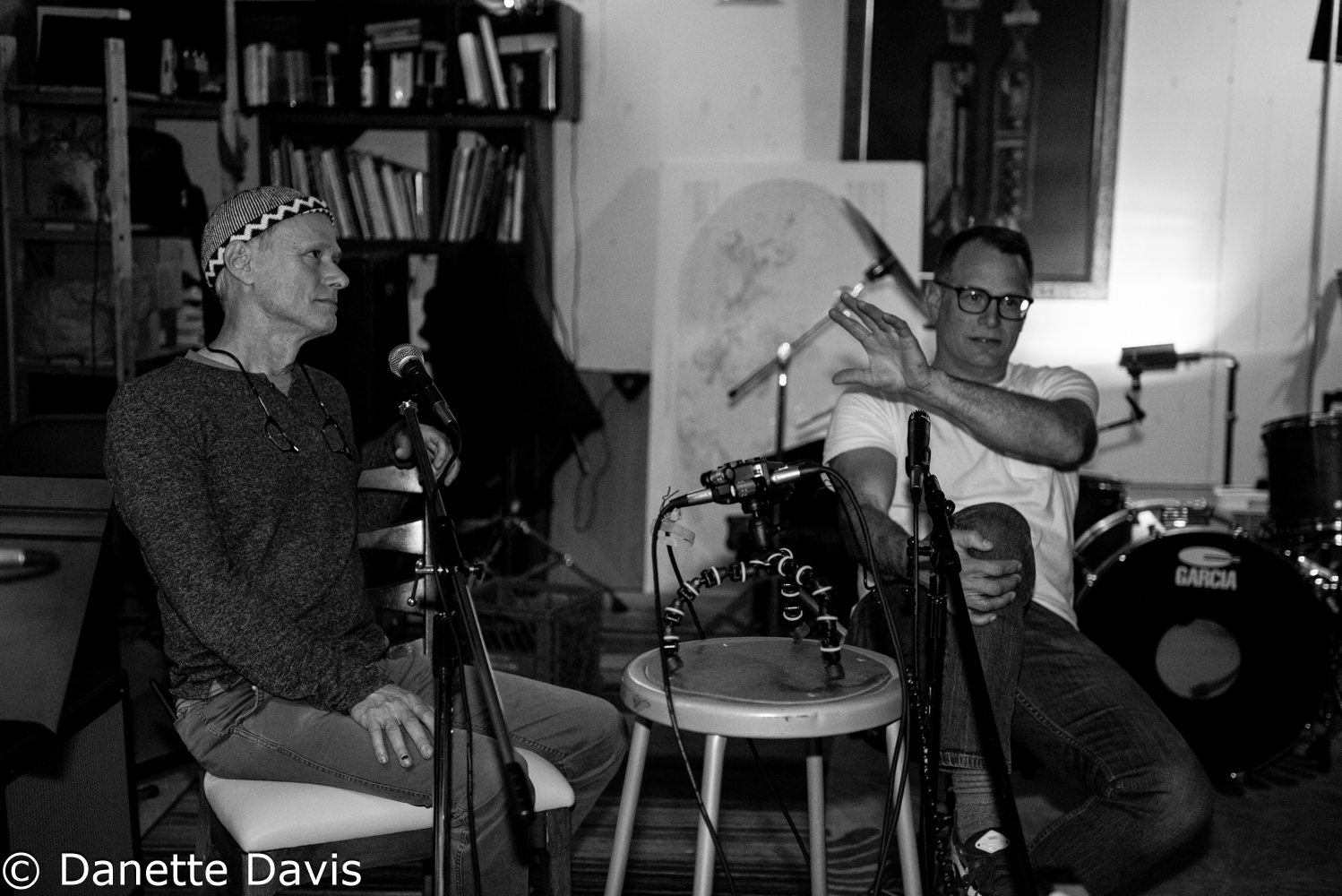 JL: I look back and I think, “I’m gonna learn from that. It could go away again.” So any band I play in I’m gonna play like it’s the last time I’m ever gonna play. I can’t always do it to that level, but that’s a mindset I have. Looking back, we were kids, and chapters change, life changes and it was an awesome moment, an awesome period, and no regrets, because it could have been me or Sean or Ben that had something that changed their lives, and luck of the draw it was you (to JT). But then we all got to do these cool things. You (to BM) played in a ton of bands, you (to SB) did some great stuff, and you (to JT) played on some great stuff and went to recording school. Life unfolded, but it was like we were just at the tip. But also the scene dried up, and the DJs started taking over, and all our friends whose bands got signed left in limos and tour vans and came back in Econolines, and deals got canceled and things changed. Radio killed the video star, man!
JL: I look back and I think, “I’m gonna learn from that. It could go away again.” So any band I play in I’m gonna play like it’s the last time I’m ever gonna play. I can’t always do it to that level, but that’s a mindset I have. Looking back, we were kids, and chapters change, life changes and it was an awesome moment, an awesome period, and no regrets, because it could have been me or Sean or Ben that had something that changed their lives, and luck of the draw it was you (to JT). But then we all got to do these cool things. You (to BM) played in a ton of bands, you (to SB) did some great stuff, and you (to JT) played on some great stuff and went to recording school. Life unfolded, but it was like we were just at the tip. But also the scene dried up, and the DJs started taking over, and all our friends whose bands got signed left in limos and tour vans and came back in Econolines, and deals got canceled and things changed. Radio killed the video star, man!
JD: OK, how about some highlights of the post-Medicine Hat years?
BM: Sean and I had a band starting in 2004 called C’mon C’mon, did a couple of records. That was awesome
SB: I don’t know… after the band broke up I kind of went on a little journey and discovered myself. Jason Thomson moved back from New Orleans after going to recording school, engineering school and we rented a house out in Ballard, and we actually recorded my first solo record under the name Firebrat, which was super fun. And that got some good attention from KEXP. And then Ben and I did C’mon C’mon. And then after C’mon C’mon I started a band with Justin Davis, Keith Ash, and Gary Westlake, and Chris Friel called Strong Suit and then after that I decided to actually do my own solo album under my name for the first time, that we recorded back in 2020 right before Covid, and then Covid happened, so it actually didn’t come out until July. But that’s called The Central Sound which has got some good radio play from KBCS from Ian Hughes. And I do an annual show every year called HalloQueen where we do Queen songs all night. We just had our 24th show. 24 years of doing HalloQueen last Saturday night. It’s super fun.
BM: Sean nails it.
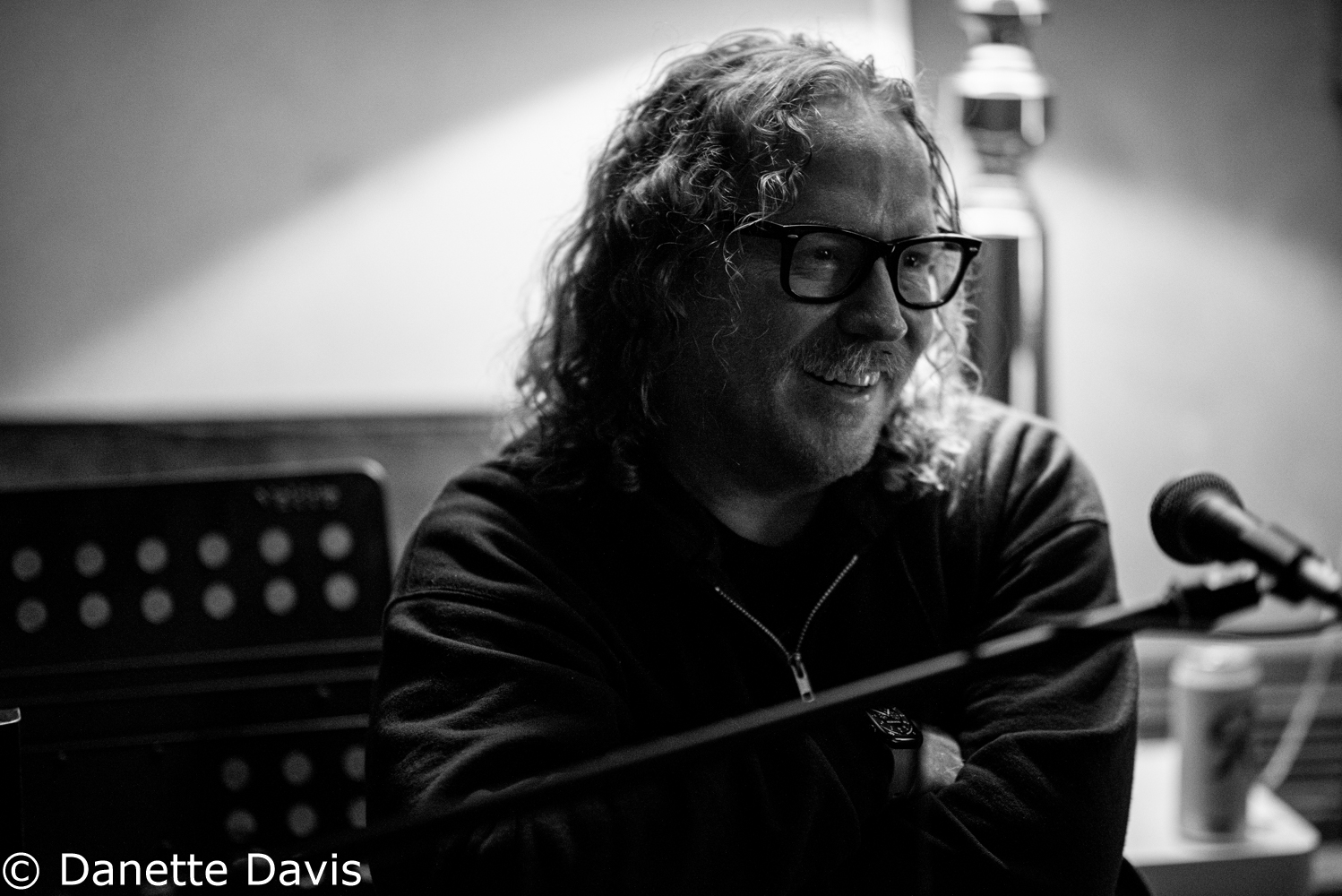 SB: It’s an experience. I try to keep busy doing music. My wife and I — she’s a lyricist and we’ve got about five songs recorded right now, we’ve got about six more we’re gonna do, which is really fun ‘cause I’ve never had someone write lyrics for me where I just write the music, the melodies. I don’t know… just having fun. And then this. This reunion. Oh, my god, this has been insane, reliving… Wow, I can’t believe I did all this stuff. It’s a lot, but it’s really fun, and these guys are great.
SB: It’s an experience. I try to keep busy doing music. My wife and I — she’s a lyricist and we’ve got about five songs recorded right now, we’ve got about six more we’re gonna do, which is really fun ‘cause I’ve never had someone write lyrics for me where I just write the music, the melodies. I don’t know… just having fun. And then this. This reunion. Oh, my god, this has been insane, reliving… Wow, I can’t believe I did all this stuff. It’s a lot, but it’s really fun, and these guys are great.
JT: I picked up the upright bass in 1998 and played in a noisy country band influenced by Slingblade for about seven years.
SB: I played drums in that band.
JL: Hicky.
SB: I played a gate. I had this card table, and I had this spring that was between two hooks, and we had a water bottle.
JT: And a piece of chain-link fence that we attached all this shit to.
SB: I just did percussion. And we went on tour, remember we went down the West Coast.
JT: The guitarist…
SB: I was in a band with him too!
JT: Rob [Bursmith] and drummers just wasn’t a good thing, and eventually after going through like four drummers we got him a kick drum with a pedal and a snare on its side with a pedal, and he would sit there and just do that. And he and I toured, just the two of us doing that. It was just ridiculous.
SB: I forgot about Rob. Rob was in a band, [The] Pleasure Elite… After Medicine Hat broke up I got lots of offers. Like people, “Hey, will you sing in my band?” And Rob called me up one day and as it happened, I lived a half a block from where his rehearsal space was, and I was in a band with him called Conspiracy A-Go-Go. That was really fun. That’s when I was learning how to play guitar. I’m still horrible at guitar, but I played guitar in that band for a little while. And sang. That was the other band I was in.
JT: I was gonna say that after 2004 I haven’t touched an instrument…
SB: Do you believe that?
DD: Really?
JT: Until May of this year.
DD: Are you serious?
JT: I had actually sold all my gear. The bass, I’ve owned that since I was a teenager, that’s the only thing that I kept.
SB: It’s the best bass in the world.
BM: It is a cool bass.
JL: And you see him go dugadoo, dugadoo. (Motioning really fast bass playing)
SB: The Music Man.
JT: Yeah, I’d hung it up. It’s pretty weird to be doing this. I’ve got enough time on my hands that I was able to practice. Sit and play.
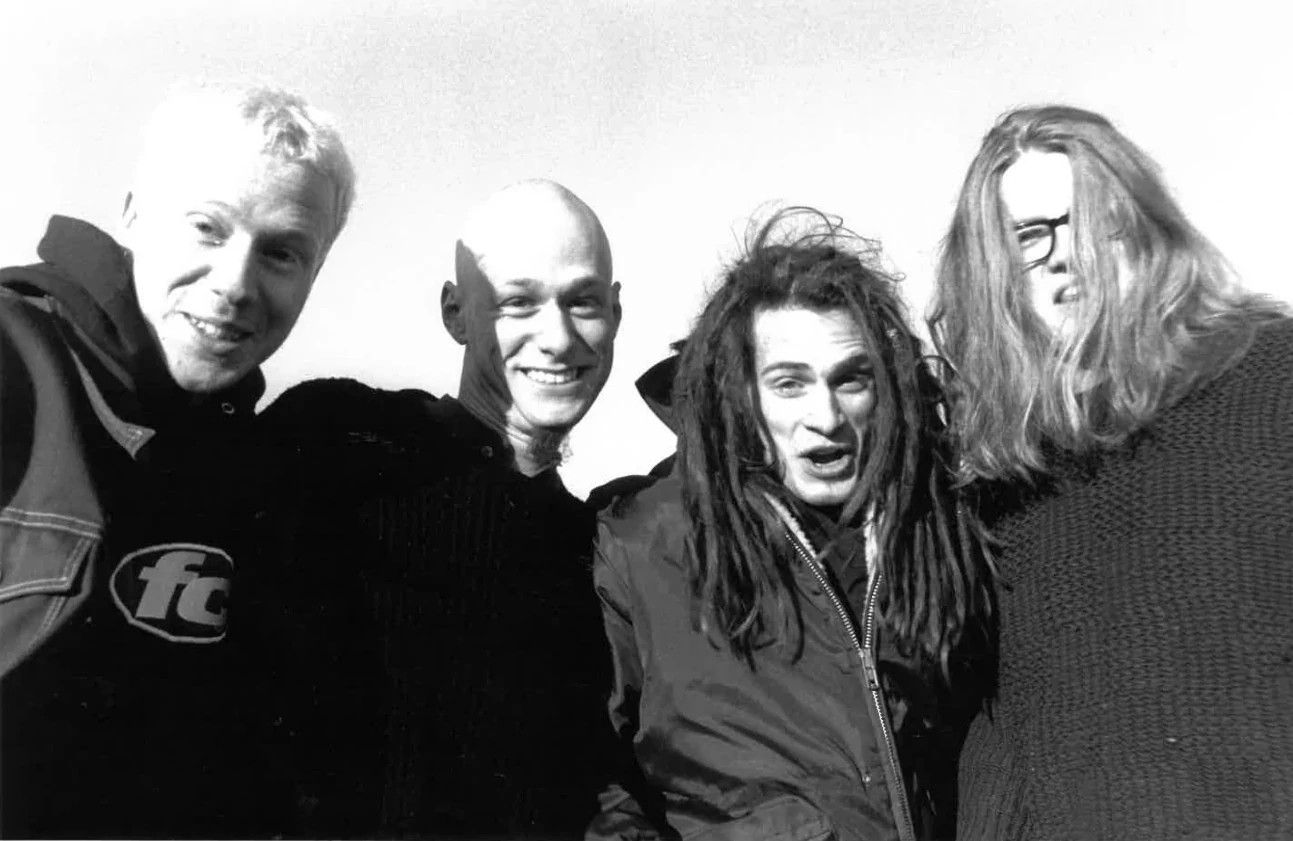 JL: I played drums on a TV show right after Medicine Hat, and moved to LA, in the house band. It was called The Barry Sobel Show on Comedy Central. It was supposed to be…
JL: I played drums on a TV show right after Medicine Hat, and moved to LA, in the house band. It was called The Barry Sobel Show on Comedy Central. It was supposed to be…
SB: I didn’t know that!
JL: I was gonna go to LA and play on the late night sort of show. And it just flopped. But Fred Willard was in there. Who’s the main Tonight Show guy now?
BM: Jimmy Fallon.
JL: Jimmy Fallon was on it, Chris Rock was on it. It was really just this weird thing on Comedy Central that didn’t make it. And that’s kind of when I stopped playing for seven, eight years. Then I moved back to Seattle and I played in a math-rock band called Thuglife Baldwin, made two really awesome EPs, like pretty powerful in my opinion. John Plum recorded us, he owns London Bridge Studios now. And then two of the guys moved, kinda like what happened to us, they’re like, “Hey, I’m outta here.” And it’s like, “Ok, so it goes.” I’ve been there before, it was easier the second time. And one of the guys who was in the band was like, “Hey, what if we keep playing together?” So we tried to do a bass and drum thing called Cat and Mouse, didn’t work. And we said, “What if we try bringing some other guys in?” So he’s like “I’ve been practicing in my basement, and I have the worst name for a band. What do you think of Steel Tigers of Death? It’s pretty much just me right now, but you be Remington Steel and I’ll be Michael Deth. And then another guy joined up, and he was El Tigre. And then another guy was the last to join and he got Of. He’s Bradley Of.”
BM: Haha, “Bradley Of.”
JL: So I played in a band called Steel Tigers of Death for about 15 years. We toured all over, it was like a really fun punk band, pretty fast. Not super complicated like Medicine Hat was, but pretty fast. We didn’t make it through Covid, and then that split into a band called The Nines, kind of a synth-punk band I play in with a bass player from a band called Android Hero. Their old bass player was in Treepeople, so a cool connection, and then I’ve been recently playing in a band called Laser Beans, and it’s just two of us, bass and drums, the same guy I’ve been playing music with for the last 15-20 years. Just the two of us, we’re finishing up our first record. So right now I’m playing in a few bands. In my 50s, and I’m sore!
BM: It’s been a while. A lot of projects since then.
JL: And yours (to BM) are infinite, right?
BM: I went to music school to do a composition degree, and I wanted to be a film composer for a while, so I would do music for anybody whose films would have me until like ‘98 or ‘99. And I played bass the whole time growing up, as well as guitar, so I was playing bass in a steel drum band for money, which was good when you got paid. And then I was in Degenerate Art Ensemble for a while with Joshua Kohl and a bunch of other bands after that…
JL: Wiz Priz.
BM: Yeah, the Priz.
JL: One of my favorites.
BM: Yeah, the Wizard Prison with Scott Colburn... we got to tour with Animal Collective down the coast which was really fun and then book our own, much smaller tour on the way back when they went on without us. What else? Tuktu. Bunch of bands that I sunk my time into I was in between things.
SB: And your guitar collective.
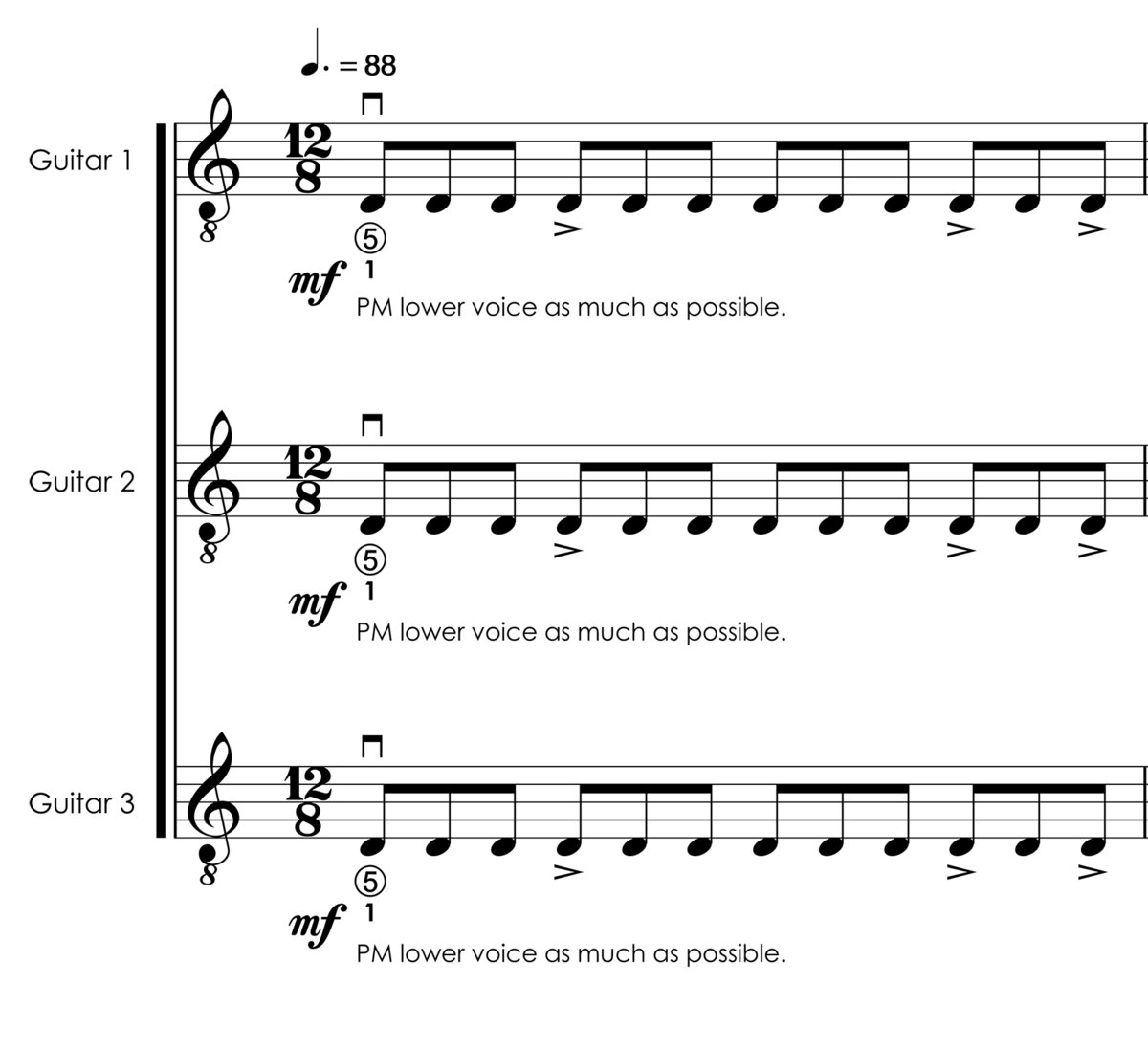 BM: Yeah, now I’m trying to get the Guitar Cult’s record done… started!
BM: Yeah, now I’m trying to get the Guitar Cult’s record done… started!
SB: I’ve been to one of those shows and it was amazing.
BM: Thanks. Danette’s been super supportive of me lately. But I’ve always had this obsessive thing going with music. And no kids, too, so it’s like…
JD: So how did the reunion happen? Whose idea was it? Who called who?
JL: I saw Sean on Tinder…
SB: Every year this band Chimestone does an annual show, and they try and get bands from the same era to play with them. And every year, Chris Friel, who I play with very frequently in three or four different outfits, is always like, “Hey, will Medicine Hat play?” And every year it’s like “No, no, no.” And then this year it was like, “Let’s do it!”
BM: Yeah, we’re really tight too, good friends with Chris and his wife Kim. So he was over, and he was like, “I asked Sean, has he texted you yet?” “No.” “Will you text everybody right now?” “OK.” So slowly but surely we got everybody for this yearly show. So maybe there’s gonna be one next year too. You never know.
JD: Any more thoughts on what it’s been like to get back together?
JL: A lot of thoughts. It’s been great. You know Jase, he and I were super tight musically, and also friendship-wise, for a long time and it’s been really nice to feel his energy musically and also as a friend again. And same with Sean, it’s really great to hear your voice. And Ben, he’s super light-hearted and a really great person. It just feels really… It’s like putting on a really cozy old jacket.
SB: Exactly.
JL: It smells really weird, but…
SB: It’s been cathartic too. You know when we went through that four or five years where we did that, we were like really formative, like 19 to 24 or whatever, and now all this time has passed, and we’re all like dudes in our 50s with mortgages and kids and businesses, you know, and it’s so amazing to just relive all of this stuff that we created when we were that young.
JD: With better gear.
SB: With better gear.
JL: Or the same. (Gesturing to the drum kit) I have the same stuff.
SB: It’s like gosh, you get to a point where you’re more reflecting than you are looking forward and this has just been such an amazing journey with these guys and I’m just so glad we get to share it again. It’s so fun. It’s so fun. (Gesturing at the binder of lyrics) And I’m like, “I sure had a lot to say back then!” Really loudly, and a lot of words.
BM: It’s super formative for me, like I’ve written in so many contexts and always hear Jason’s snare crack in my head and try to coach Greg Campbell or somebody, so I play a little Medicine Hat for them, and ask “How am I supposed to write this?” Or Jason’s bass sound, ‘cause that Music Man doesn’t sound like any other bass.
SB: It’s true.
BM: He and I have done a lot more music separate from Medicine Hat and we’ve been in more touch, but everybody has these sound signatures that I’ve always tried to… they’re like primary colors that I knew the whole time. It was like the first real music project I was ever part of, so it coasts through every other project I’ve been in.
SB: It’s the foundation.
BM: Yeah, total foundation.
SB: I’m always like, I never think people hit drums hard enough.
BM: Totally! There’s this Legat template that nobody matches up to.
JL: Thanks, guys.
JT: It’s kinda weird for me ‘cause I feel like I kind of turned it off and now I just turned it back on.
DD: You turned it on so well!
SB: Well, you didn’t hear us four weeks ago!
DD: I didn’t know what to expect, but it was pretty cool.
JT: The venue is going to be interesting, the jazz club vibe…
SB: It’s a lot of sit-down.
BM: And we’re so loud, right?
JT: It’ll be perfect. It should sound good in there.
SB: So many people have bought tickets.
BM: Really?
SB: Oh, yeah.
JL: There’s seven, maybe eleven.
SB: And everyone that tells me, I tell them to bring their earplugs, it’s gonna be really loud.
JL: Hey, that’s how we were then. You know, everyone was on full, and that’s how we played.
JT: Loud math-rock.
BM: Loud, loud.
JL: I remember we played at the Moore, and I had just lost my dreadlocks from bleaching them one too many times and I remember I looked up and there’s a song where Jason would lean his bass against his amp and it would it would have this rhythmic thing and I would play to it and I remember looking up and just as I looked up all these guys were stage-diving at the same time but the sweat was in my eyes so bad ‘cause I didn’t have anything to hold it back, and I’m like “They aren’t really doing that? Where are they? Get back up here! You can’t keep doing this!” And finally they all get back up on stage. Sometimes when we’re playing I’ll close my eyes and I just get that visual of sweaty sore eyes and just seeing these guys soar into the crowd. And looking up, and no one’s flying right now. Good memories.
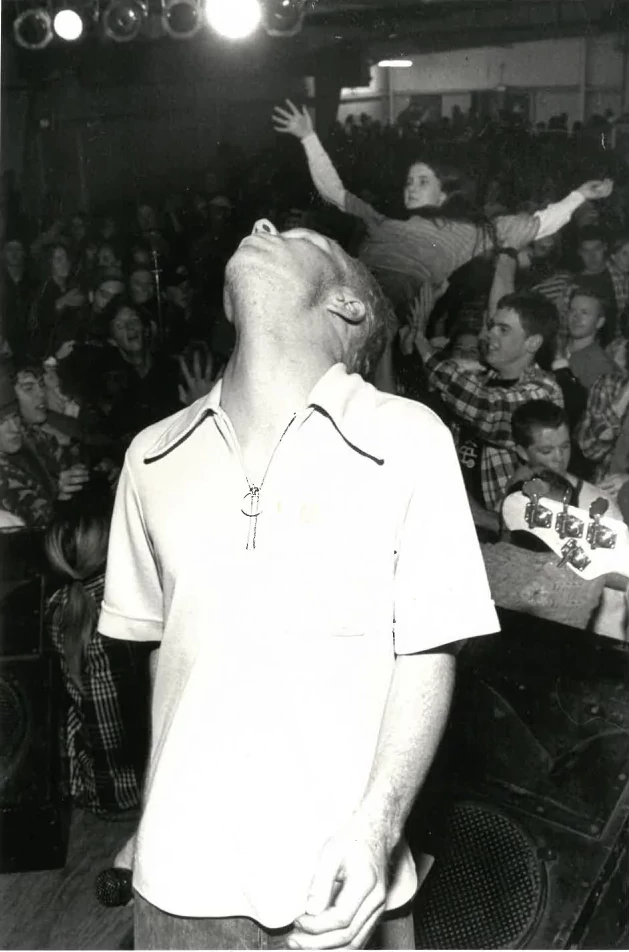 SB: There’s this one picture I have that you got from Jeff where he took it and my head’s back like this but in the background you see the crowd and there’s like two people just being carried…
SB: There’s this one picture I have that you got from Jeff where he took it and my head’s back like this but in the background you see the crowd and there’s like two people just being carried…
BM: Passed around.
SB: Yeah. Back then, stage diving was a thing. I’m sure it was an OK Hotel show.
BM: Probably.
SB: Yeah, he captured some good moments. And that’s the thing too, is it was film, it wasn’t digital.
JD: And these days, everything is documented 24/7...
SB: I know!
DD: So will there be any new music?
SB: Not on purpose.
JL: Like in the future, or at the show?
DD: Any time.
JT: We haven’t gotten there yet.
BM: I don’t know, yeah. That’s a good question.
JL: Ben’s trying to get everyone drunk to make it happen.
BM: It has not been ruled out.
SB: I wonder what kind of music we would write now.
DD: I do too!
BM: Real different! I would play something besides harmonics and whammy bar.
SB: We’ve all gone these different directions…
JD: Put some of that into it.
BM: Yeah.
DD: There’s no rush, but I’m here.
SB: I love it.
BM: Thanks.
JD: Aside from that question, any other future projects. I know you’ve got Guitar Cult, Ben.
JT: I’m taking lessons, learning music theory again. Gonna refill my education gaps. I was a music major — we were all music majors — and I quit because I was in a band. I was like the band is getting me way more music experience than I was getting as a performance major. But now I’m kinda, I should have finished that degree.
SM: I’ve got the project with my wife. That’s what I’ve got going on. After our show, I’m pretty much done for the rest of the year. I’m sort of excited for that though.
BM: Yeah, you’ve been busy.
SB: I’ve been really busy.
JD: I look forward to hearing all these different things.
SB: I found out the other day I have my own radio station on Spotify. Sean P Bates Radio. So I had this band during quarantine where we wrote all of our songs through email and it was called All of Us, and we’ve released five or six songs but every song has been done through email so someone would write a song and then everyone else would email their parts and then someone would mix it. So there’s a lot of that on there too, which is pretty fun.
JD: Thanks very much for your time, for taking time after rehearsal.
JT: Thanks for doing this. I’ve heard some things I never heard before.
BM: Yeah!
Medicine Hat will be playing their reunion show at The Royal Room in Seattle on November 17, 2023, their first performance of any kind since 1994. Stage diving is highly unlikely, but if the quality of their playing in rehearsal is any hint, it will be an outstanding night of music. Also on the bill are Chimestone and El Steiner, two other Seattle bands with a long history.
This lengthy article is presented as a means of preserving a chapter of Seattle music history that shouldn't be forgotten. But for those who weren't there, it's a view into the life of a young band of the time who went their own way musically, and saw a different side of the music business than what we often hear about from chart-topping artists.
Filed under: Interviews
Related artist(s): Medicine Hat
More info
http://theroyalroomseattle.com/event/medicine-hat-el-steiner-chimestone/
What's new
These are the most recent changes made to artists, releases, and articles.
- Review: LeoNero - Monitor
Published 2026-03-04 - Review: Sterbus - Black and Gold
Published 2026-03-03 - Release: Janel Leppin's Ensemble Volcanic Ash - Pluto in Aquarius
Updated 2026-03-02 15:06:51 - Release: Janel Leppin - Slowly Melting
Updated 2026-03-02 15:05:27 - Release: Alister Spence - Always Ever
Updated 2026-03-02 15:04:11 - Release: Let Spin - I Am Alien
Updated 2026-03-02 15:02:41 - Review: Falter Bramnk - Vinyland Odyssee
Published 2026-03-02 - Review: Exit - Dove Va la Tua Strada?
Published 2026-03-01 - Review: Steve Tibbetts - Close
Published 2026-02-28 - Release: We Stood Like Kings - Pinocchio
Updated 2026-02-27 19:24:02 - Release: Stephen Grew - Pianoply
Updated 2026-02-27 19:20:11 - Release: Thierry Zaboitzeff - Artefacts
Updated 2026-02-27 00:16:46 - Review: Kevin Kastning - Codex I & Codex II
Published 2026-02-27 - Release: Zan Zone - The Rock Is Still Rollin'
Updated 2026-02-26 23:26:09 - Release: The Leemoo Gang - A Family Business
Updated 2026-02-26 23:07:29 - Release: Ciolkowska - Bomba Nastoyashchego
Updated 2026-02-26 13:08:55 - Review: Immensity Crumb - Chamber Music for Sleeping Giants
Published 2026-02-26 - Release: The Gatekeepers - Diary of a Teenage Prophet
Updated 2026-02-25 15:55:58 - Review: Mars Lasar - Grand Canyon
Published 2026-02-25
